Secure your health with comprehensive insurance plans from Nivabupa
Tell us a bit about you
Omicron Symptoms: A Rare Disease with Devastating Affects
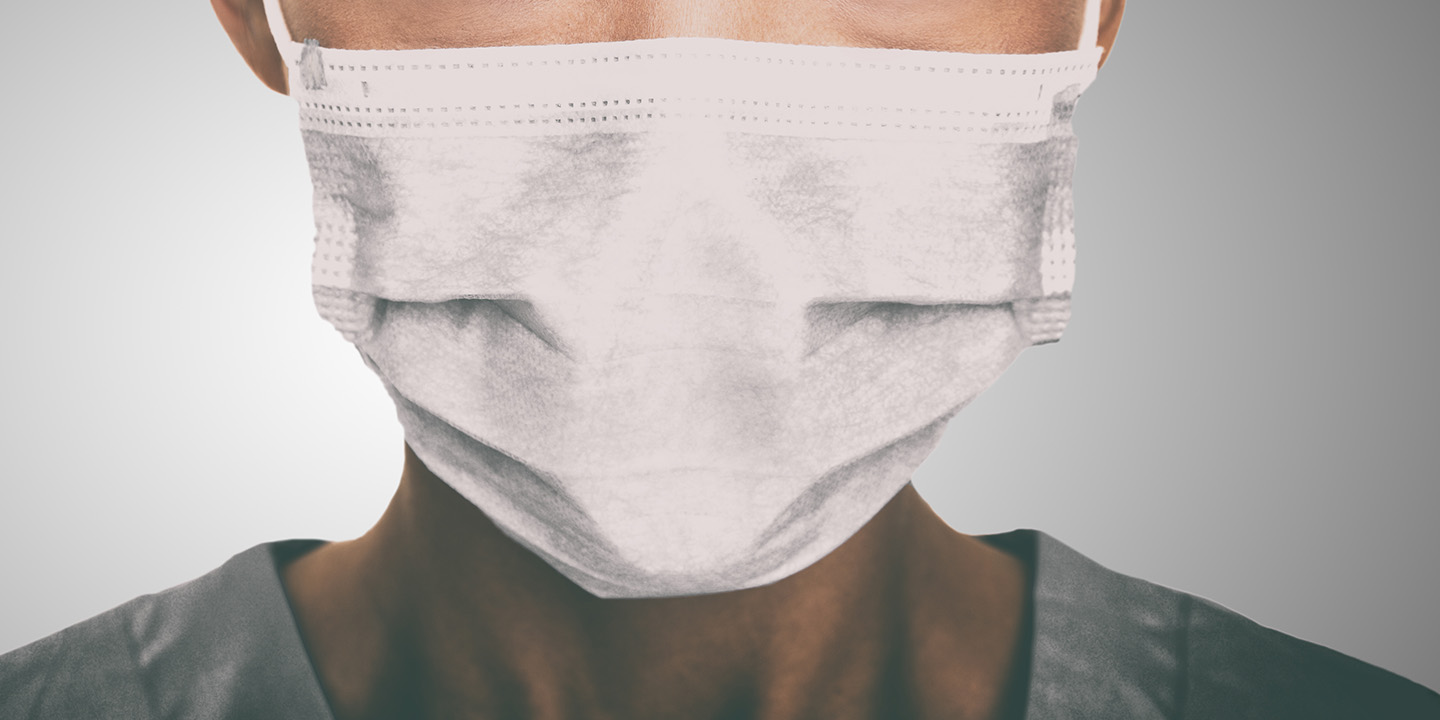
The COVID-19 Omicron variant has been identified as a variant of concern by the WHO. Omicron is spreading faster than any other variant before it. The overall risk associated with this variation remains exceptionally high. Moreover, Omicron subvariants continue to be the most common cause of COVID-19 infections worldwide. The first variant of Omicron, known as BA.1, was discovered in November 2021 and caused a significant rise in infections worldwide.
What is Omicron?
Several subvariants have been spotted since the Omicron variant first appeared in late 2021. Because the virus is circulating at such high levels worldwide, the numerous variants are considered dangerous. The BA.5 strain of Omicron is currently the most common and contagious subvariant worldwide. However, it is not considered as severe as the other Omicron subvariants, and WHO-approved COVID-19 vaccinations continue to protect against illness and death effectively. Unfortunately, spikes in instances, which have been recorded globally, can put health care under great strain.
While Omicron is considered milder than prior forms, some Omicron symptoms might last for weeks and are now being noticed in persons of all ages, particularly those with low immunity.
Symptoms of the Omicron Variant
If you believe that a loss of sense of smell or shortness of breath indicates that you have COVID-19, you could not be more wrong. The symptoms of coronavirus infection have altered over the years as the virus has mutated. Though the Omicron symptoms are said to be lesser now, it is critical to grasp what you are dealing with and detect the early indicators of the sickness. Just like its predecessor, Omicron affects the olfactory functions of the body.
Here are some most common to minor common symptoms of the Omicron variant:
Fever:
In most cases, a fever is the first sign of COVID-19 and Omicron, followed by a cough and muscle soreness. It usually lingers for 3 to 4 days.
Fatigue and Body Pain:
Body discomfort is one of the tell-tale indicators of the Omicron variation. Other Omicron symptoms can be severe night sweats.
Headache:
Headaches are mild to severely painful, pulsing, pressing, or stabbing, occurring on both sides of the head rather than just one. This stage lasts roughly 3 to 4 days.
Sore Throat:
One of the early signs of COVID-19, sore throat is experienced within the first week of infection. This symptom usually lasts two to three days. However, it can last a few days longer in some people. Moreover, such a sore throat can be highly unpleasant and irritating.
Digestive Issues:
Many people who have suffered from COVID-19 in recent years have experienced gut health difficulties. It was the first warning for some. Therefore, it is advised not to take symptoms such as diarrhoea for granted.
Loose motions and stomach pains are unusual symptoms in this wave. The third wave has three main symptoms: terrible headache, severe backache coupled with considerable physical pain and a nasty cold with a stuffy nose and sore throat.
Protection against Omicron variant
To protect yourself from Omicron, the most important thing you can do is lower your risk of infection. The following are the primary methods to protect yourself from omicron variant:
- Cover your nose and mouth with a mask.
- Maintain a physical gap of at least one metre between yourself and others.
- Avoid places that are inadequately ventilated or congested.
- Open windows to increase indoor ventilation.
- Get immunised when it's your turn.
- Regularly wash your hands.
- Keep yourself updated about the information on the licenced COVID-19 vaccines available in your area.
Although the disease's severity has decreased, the possibility of transmission has grown. If the symptoms appear, individuals should be tested for COVID-19 to receive adequate treatment and to isolate themselves from others to control cluster transmission. Wearing facial masks, frequent hand washing, and keeping a 1-meter distance from others will help avoid the Omicron type of COVID-19. You can also opt for health insurance plans covering COVID-19 and its variants.
Secure your health with comprehensive insurance plans from Nivabupa
Tell us a bit about you

Niva Bupa ensures that health insurance claim procedures are processed as quickly as possible & has 89% claims ratio which a reason and result of the trust of many, when it comes to claims processing.
READ MORE
In the article, Niva Bupa has explained how you can avail free medical checkup as part of your health insurance policy and things to look out for. Click here to read more about it.
READ MORE
Before choosing a mediclaim insurance policy, it is important to know what is covered and what is not. This article explains, what has covered & not covered under a mediclaim policy.
READ MORE
Present the bills, prescriptions, discharge summary and other necessary documents when you request for reimbursement. Download & fill the reimbursement form, available on the insurance website. This is how to claim health insurance
READ MORE
In a country like India, where healthcare costs can be outrageous, access to quality healthcare can challenge many people. Prime Minister Narendra Modi launched the PM health insurance scheme or Ayushman Bharat Pradhan Mantri Jan Arogya Yojana to manage healthcare services. Read to know more.
READ MORE
A super top-up health plan covers the total hospital bills up to the limit specified in your super top-up helth insurance plan. Know all about super top up health insurance plans in India.
READ MORE
Surgery is the best way to treat cataracts. Cataract insurance coverage is inclusive of surgical expenses. Read & understand the need for health insurance for cataract surgery.
READ MORE
Health insurance migration is a term used to describe the ability of an individual to transfer their health policy from one insurance provider to another without losing their policy benefits
READ MORE
Your health insurance grace period is the additional time you are provided if you fail to pay your policy renewal payment by the due date. Read the entire article to know more about the topic.
READ MORE
No Claim Bonus Health Insurance is a benefit offered by Niva Bupa health insurance company to policyholders who do not make any claims during the policy period
READ MORE
Ayushman Bharat Yojana scheme (PMJAY) is the largest in the world in terms of health insurance. Read the article to know more about the Ayushman Bharat yojana benefits.
READ MORE
The article explains the room rent limit in health insurance. Understand all about room capping in health insurance, different types of room rent coverages & how it affects insurance claims.
READ MORE
Explore 5 economical health insurance plans for senior citizens with Niva Bupa. Ensure comprehensive coverage and peace of mind for your loved ones today.
READ MORE
Medical emergencies generally exhaust most of our savings, so it is suggested to have a health insurance to secure the future. Read the article to know the importance of insurance.
READ MORE
The free look period is a provision included in health insurance in India that allows the policyholder to review the terms and conditions of the policy, and make changes or even cancel the policy without any penalties.
READ MORE
While purchasing a health insurance policy there are several documents that are required. These documents are listed in this article by Niva Bupa.
READ MORE
Yes, you can buy health insurance for new born baby. Discover the options of buying health insurance for a new-born baby with Niva Bupa.
READ MORE
Despite its horrific nature, the coronavirus is not one of the top 10 deadliest illnesses. Here is a list of the most serious illnesses that you need to be aware of.
READ MORE
Health insurance can be availed in different ways by physically & mentally disabled people. Know about the plans offered by government for physical & mentally disabled people.
READ MORE
Discover why adding parents to your existing health cover may not be advised. Understand the potential drawbacks and complexities involved in adding parents to your policy with Niva Bupa.
READ MORE
Your current health insurance might not be sufficient to take care of your future healthcare needs. Know how to enhance your existing health insurance plan & get more benefits.
READ MORE
It's true that most of the health insurance providers give total knee replacment health insurance in their plans. But to know more in detail read this article about total knee replacement surgery.
READ MORE
Know about the different types of health insurance add-ons you can choose from. Read the article and know about 5 add-on covers that can help you in improving your health insurance cover.
READ MORE
Health Insurance Plan for Diabetics: Patients in India find it overwhelming to find the right diabetes health insurance plan. Get to know about diabetes, types & causes of diabetes, preventive measures, etc.
READ MORE
“Inclusions” and “Exclusions” are two terms used in every health insurance policy which state the expenses covered and not covered by the insurer. This blog will cover the basic understanding of the same.
READ MORE
Read this article today to understand the importance of buying a health insurance plan in India & the factors that should be considered before buying a medical policy. Click here to start reading.
READ MORE
Learn about the restoration/refill benefit in health insurance and how it works with Niva Bupa. Understand how this feature allows you to replenish your health coverage limit during a policy year.
READ MORE
Understanding the difference between incurred claim ratio and claim settlement ratio is key to knowing which insurance company is best suited for your health insurance needs.
READ MORE
With Niva Bupa health insurance for senior citizens get your parents future completely secured. Read the article to know more about it.
READ MORE
Do you know buying health insurance on an EMI is a smart way of gaining higher health insurance coverage and quality treatment for your medical needs. Read this article to know more.
READ MORE
To have a secure future for you and your spouse, it is vital to make important changes in your health insurance policy after marriage. Read to know more about it.
READ MORE
To learn more about how you can avoid medical claim rejection in India and what are the main reasons you can face while claiming the insurance
READ MORE
Yes, IVF treatment is covered in Health Insurance .Explore the options provided by Niva Bupa. Uncover the details of IVF insurance plans. Learn how to secure insurance for IVF treatment and fertility treatments, ensuring financial support and peace of mind with Niva Bupa.
READ MORE
Read about the Advantages and Disadvantages of Corporate Health Insurance plans in India. Check out the difference between Corporate & Individual Health Insurance plans.
READ MORE
Cashless health insurance policies, are those insurance plans wherein the policyholder has the option to avail of cashless treatment at an insurer's network hospital. In case of cashless treatment, all your medical bills are settled between the insurer and the hospital.
READ MORE
Incurred Claim Ratio (ICR) is the ratio of net claims provided by an insurance provider to the net premiums received in a financial year. With ICR you can have a good idea about the financial health of a company.
READ MORE
Regular physical activity has many benefits for the human body. Since daily exercise at home is necessary for today’s time, learn about easy freehand workouts and acquire a healthy lifestyle. Read more.
READ MORE
The recharge benefit in a health insurance plan is often the best way to ensure that you are never unprepared in case a medical emergency crops up unexpectedly. Click here to know more.
READ MORE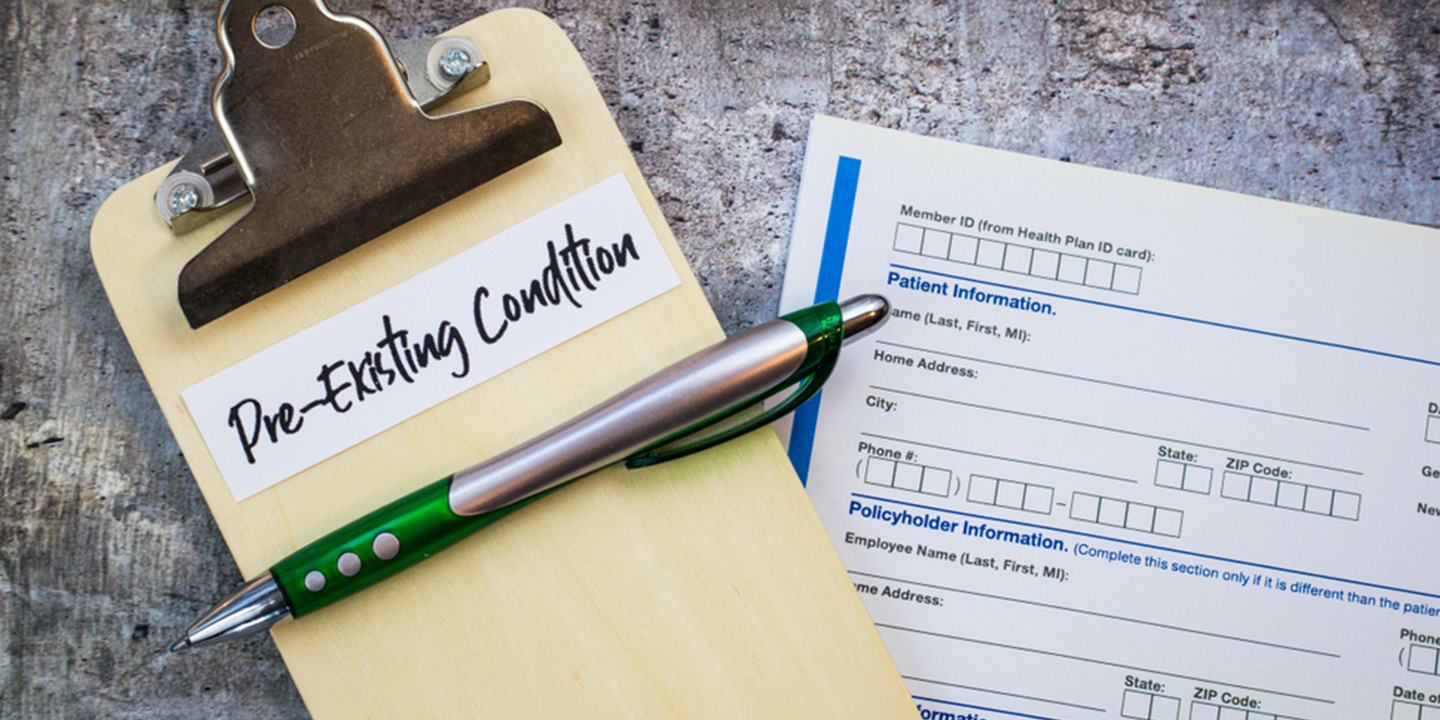
Niva Bupa offers a comprehensive medical insurance policy with pre-existing condition coverage. Discover the benefits and features of Niva Bupa's policy to safeguard your health and manage pre-existing conditions effectively.
READ MORE
NRIs can buy a health insurance policy for your parents living in India. NRIs can either buy an individual or senior citizen health insurance policy. Click here to read the details.
READ MORE
What is copay in health insurance? A very common question is anwered in this article. Read the article to know about it.
READ MORE
Read the article to know about the pros and cons of different health insurance deductibles
READ MORE
Before you buy health insurance, you must have often wondered about the right age to buy the same. Typically, people think that they need to buy a health insurance policy only when they start ageing, or when their health begins to deteriorate. The biggest fallacy, believed in by some people, is that they don’t need to buy a health insurance plan, while they are young and healthy. But, market experts advise that the right age to buy health insurance plans is at a relatively younger age i.e. in between 18-25, while you are in sound health. Besides, the millennials of the present age are at a high risk of lifestyle diseases, like hypertension, obesity, diabetes, and cardiac ailments because of poor lifestyle habits. These include lack of exercise, odd working hours, stress, pollution, and poor dietary habits. Alongside, there is the risk of vector-borne diseases, like dengue, chikungunya, jaundice etc. and pandemics such as coronavirus. So, buying a health insurance policy should be a top priority for young people.
READ MORE
People & insurance companies have recognized the importance of mental health. So, most insurance plans now include coverage for mental illness. Know about mental illness cover in health insurance, exclusions of mental illness insurance, diseases covered under health insurance for mental illness, etc.
READ MORE
Family floater health insurance, often known as a family health insurance plan, covers all members of your family under a single healthcare insurance policy. Read the entire article to know more.
READ MORE
Network hospitals play a key role in providing quality healthcare. Understand how & why network hospitals play an important role in health insurance.
READ MORE
There is no age limit to buy health inusrance for parents but as the age increases the benefits varry according to your plan. Niva Bupa explains about the same in the given article .Read the article to get a deep insight.
READ MORE
Read about the Corona 19 vaccine, check out who can take covid 19 vaccine and how to register for covid vaccination and its process. Know about the commodities that make you eligible for vaccination.
READ MORE
Buying a cancer insurance plan in India? Here are 6 things that you should remember before buying a cancer health insurance plan. Read to know more.
READ MORE
People have been largely confined to houses by the ongoing COVID-19 outbreak. Read and find out how to manage your stress, mental health, and anxiety.
READ MORE
Micro Insurance is a sort of insurance that is specifically designed for assets that are less valuable, for those making modest incomes, and for people with incredibly tiny savings.
READ MORE
Is Health Insurance Available for Insulin-Dependent Diabetes?
READ MORE
Recognize the benefits that auto recharge mediclaim coverage provides to policyholders. The article highlights the benefits of medical insurance coverage.
READ MORE
This article explains what a sub-limit in health insurance policies is, and things to look for in the sub-limits of your policy of choice. Click here for further details.
READ MORE
The expiry of your health insurance policy is nearing, you may consider purchasing a multi-year health insurance policy through a single premium especially.
READ MORE
Renewing health insurance is important as it allows the policyholder to receive continued benefits. Before renewing health insurance, read about 5 things you should check.
READ MORE
Explore the differences between Mediclaim and Health Insurance to make informed decisions about your coverage. Learn about the features, benefits, and nuances of each option for better financial protection and healthcare support.
READ MORE
Do you know we can get a health insurance policy for our parents? And your parents too need it. Know what is Covered by Your Parent's Health Insurance Policy.
READ MORE
COPD is a medical condition that includes a host of respiratory diseases. Niva Bupa offers the best health insurance plan for COPD & how it is helpful for COPD patients.
READ MORE
To learn more about what is chronic kidney disease and what are its symptoms and its causes and what prevention you can take in chronic kidney disease
READ MORE
Claim Settlement Ratio is the percentage of claims that an insurance company settles during a year. The claim settlement ratio process indicates an insurance company's potential to pay the sum insured to the policyholder. Know about the importance of CSR & how to calculate claim settlement ratio.
READ MORE
Without Health Insurance, it is difficult to bear the financial expenses of kidney treatment. A critical Illness Insurance plan can provide a lump sum amount to meet the costs of treatment, care & diagnosis of kidney disease. Know more about the importance of critical illness insurance for kidney failure treatment
READ MORE
If you want to purchase a good health insurance plan for your grandparents, consider investing in an insurance policy that is best suited for senior citizens. Read more about health insurance policies for senior citizens.
READ MORE
To read more why the medical test is important while buying a health insurance policy and benefits of buying or claiming a medical policy without medical test.
READ MORE
Learn about the benefits of senior Mediclaim Insurance, including its thorough coverage, reasonable rates, and specialised healthcare alternatives.
READ MORE
Know the need for a health insurance policy for parents and how to select the best health insurance plan for your parents.
READ MORE
The Aarogya Sanjeevani Policy is a basic health insurance policy for individuals and families that covers basic hospitalization expenses up to Rs 5 lakh. Click here to read more about it.
READ MORE
To Know more about why should you wear mask even after if you're completely vaccinated and what the benefits of its and by this how you can protect your love once
READ MORE
Be honest with your insurer while buying a health insurance policy. Always important details like age, pre-existing diseases, etc. correctly. Get to know about the importance of being honest with your insurer while buying health insurance.
READ MORE
According to the Indian Heart Association, individuals under the age of 50 accounts for more than half of all heart attacks. Also there are many more reasons why you should get a health insurance plan for heart patients.
READ MORE
Know the entire mechanism of calculating your health insurance premium. Read the article to know more about it.
READ MORE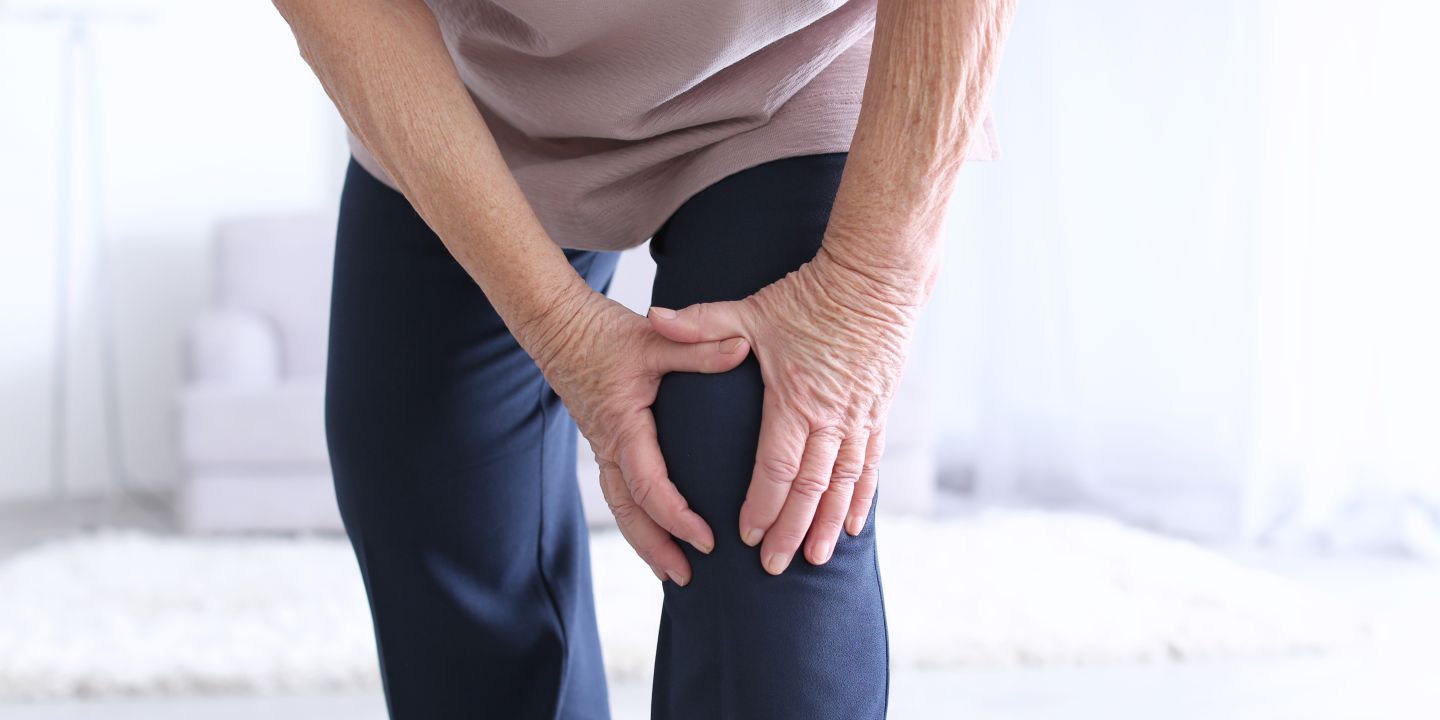
Don’t let your critical knee replacement surgery suffer due to financial crises, get your health insurance plan today and make your future secured. Read the article to get deep insight about the same.
READ MORE
Get an insight of personal accident insurance, its benefits and what does a personal accident insurance cover. Also know the disadvantages of not buying a Personal Accident Insurance
READ MORE
Know the features, benefits and tips to choose the right critical illness plan for yourself and your family. Read this article to have a deep insight of the same.
READ MORE
To know more about the insurance and reasons to buy health insurance policy, read this article and have a deep insight for the same.
READ MORE
Medical expenses are increasing day by day & there are many factors that are influencing that cost. Click here to know about the reasons, which are resulting into increasing the medical expenses in India.
READ MORE
Know how to choose the right health insurance plan and compare the different types of health insurance schemes in India.
READ MORE
Read this how to guide to Claim for Mediclaim Policy, Learn what is mediclaim policy and its benefits for claim settlement, health insurance and lots more.
READ MORE
In the event of a medical emergency, health insurance policy is the best financial support you may rely on. Read to know about the risks of not having a health insurance policy.
READ MORE
Studies have shown that waist-to-hip ratio can predict the probability of developing health concerns. Read this article to know, what is waist-to-hip ratio, and how it affects your health?
READ MORE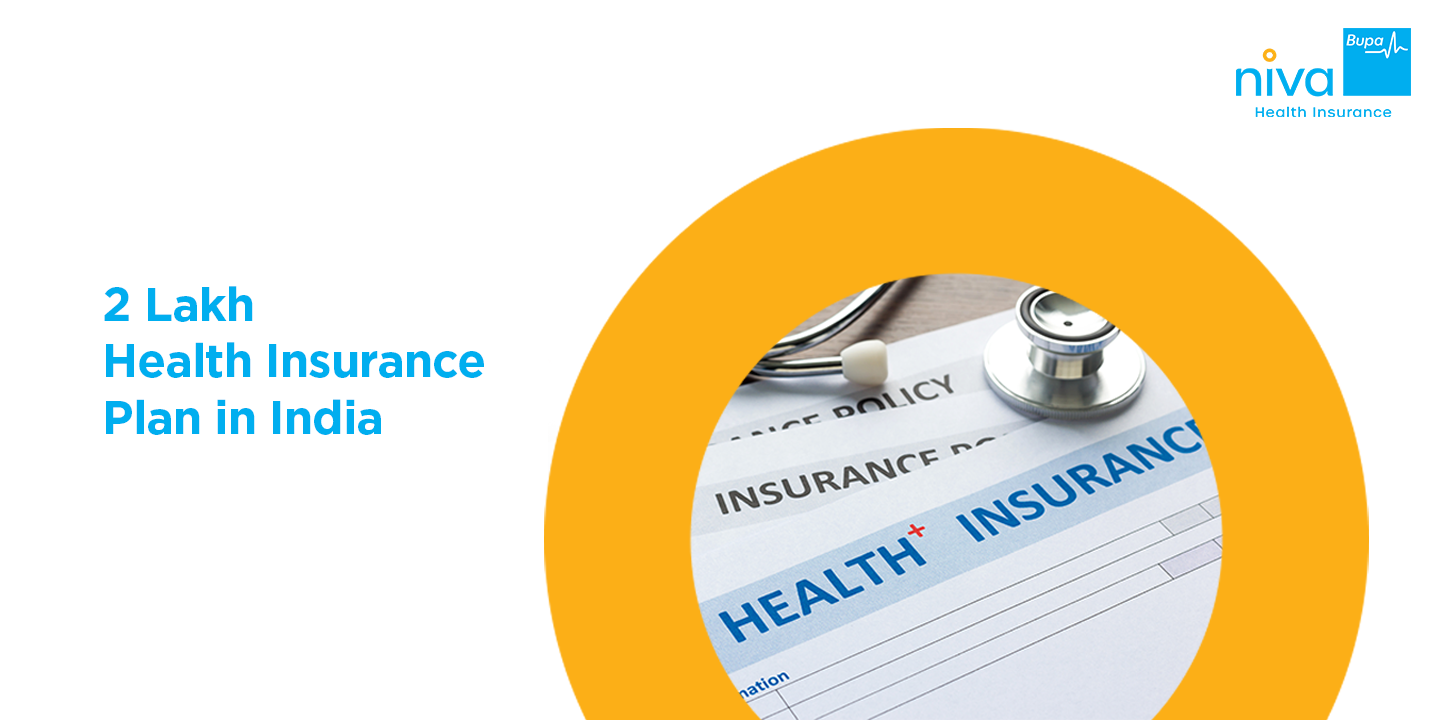
Health Recharge is a plan offered by Niva Bupa, which provides a sum insured ranging from ₹ 2 lakhs to ₹ 95 lakhs. Read to know more.
READ MORE
Get an insight about family floater health insurance plan its benefits and how you can select the best family floater health insurance plans.
READ MORE
With cashless insurance, say goodbye to all your worries about arranging money at the last minute of health emergency. Read on to know more about cashless hospitalization.
READ MORE
Mistakes made while buying a health insurance plan can land you in a tough spot. Make sure that you avoid these mistakes while buying health insurance plan.
READ MORE
know about medical policy for family, its benefits and what to look for while buying a medical policy for a family?
READ MORE
Know about about mediclaim policy and find important factors of Mediclaim Policy, Types, Inclusions & Exclusions of Mediclaim Policy. Read more about the Rules & Regulations, Claim to settlement ratio and lots more.
READ MORE
Mediclaim is a health insurance policy in which the insurer reimburses the policyholder for medical expenses. Buying a Mediclaim insurance plan might help you obtain financial aid in an emergency.
READ MORE
To know more about the health insurance value and why should you buy a health insurance, what are the benefits of buying a health insurance plan and how you can invest in it.
READ MORE
Patients with Hypertension need health insurance to reduce stress & to make sure that they receive quality healthcare treatment. The article explains why hypertension patients need health insurance.
READ MORE
Women are more vulnerable to illnesses that are peculiar to them, such as ovarian and breast cancer. Because of this, it is advantageous for women in India.
READ MORE
Niva Bupa provides the best mediclaim policy. Read the article to know about mediclaim policy benefits, choices & chracterstics
READ MORE
What You Need to Know Before Buying Health Insurance
READ MORE
In case of respiratory diseases, a health insurance plan can ease payments and ensure a range of benefits. Read the article & understand how a health insurance plan is beneficial if you have respiratory disease.
READ MORE
Know all the benefits and tips before choosing your medicliam plan. Read the article to get a deep insight of the topic.
READ MORE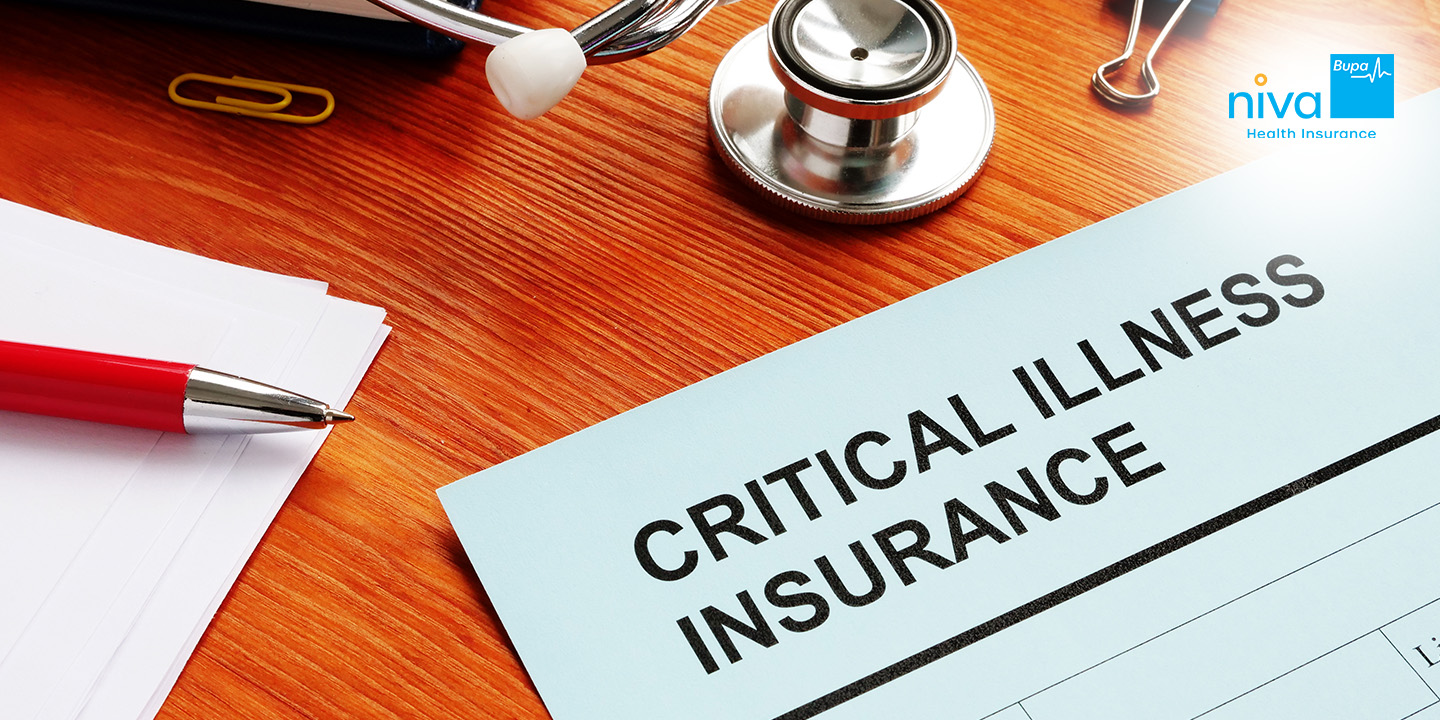
Critical illness health insurance is a type of insurance that provides financial support in the event of a serious illness.
READ MORE
Do you know that your gender can affect your health insurance premium in India? Read the article to know how does your gender affects health insurance premiums.
READ MORE
To know more about how breathing exercises can improve the lower BP & risk of a heart attack in senior citizens and how you can maintain BP levels.
READ MORE
Understand the difference, benefits, and disadvantages of short term health insurance & long term health insurance. As per requirements, opt for a long term or short term health insurance policy.
READ MORE
Buying a health insurance plan is one of the best things you can do for your health. In the article, Niva Bupa has explained the different benefits of buying a health insurance policy. Know more.
READ MORE-in-Health-Insurance.jpg)
The AI technology has been making things faster and easier for many of us. Read to know how artificial intelligence has an impact on the health insurance industry now.
READ MORE
Every year, nearly 230 million people develop illnesses as a result of malaria. Niva Bupa covered the dangers, signs, and treatment of malaria during COVID-19 in the article. learn more
READ MORE
Have you heard about family floater medical insurance? Know about it and its benefits. Also do remember the things before purchasing a family floater mediclaim
READ MORE
Do you know what is individual health insurance and best individual health insurance plans in India? Read this article and get your doubts cleared.
READ MORE
Corona Kavach is a health insurance policy that protects policyholders against coronavirus. IRDAI had mandated general insurance companies to offer short-term insurance plans to cater to the maximum number of people. It also provided options to renew, migrate & port existing Corona Kavach policy to the comprehensive health insurance plan.
READ MORE
Consider these 8 pillars of health insurance if you are buying insurance for first time. Read the article & know about the pillars of health insurance that should be considered before buying a policy.
READ MORE
In practically every country today, deadliest disease and stroke have emerged as the main causes of health concerns. Some of the most deadly illnesses are affected.
READ MORE
Why Must Women Have a Separate Health Insurance Policy
READ MORE
Depending on the number of people you intend to cover with your health insurance policy, make a choice between group health insurance and individual health insurance plan. Know more.
READ MORE
You can always buy a second health insurance policy if you are not satisfied with your primary health insurance. Know about the things to consider before buying a second health insurance policy.
READ MORE
Do you know what Health Insurance is? Why do we need it? And factors to consider for choosing the best health insurance plan.
READ MORE
Comparing & buying a critical illness plan is not easy. The article explains the components of a critical illness insurance plan & what you should look out for while comparing them.
READ MORE
Health insurance programmes enable both individuals and families to obtain the necessary medical care without having to worry about the cost. Read More.
READ MORE
Health ReAssure Plan offered by Niva Bupa is among the best plans for the family. Read the article to know all about health the reassure plan.
READ MORE
Coronavirus has been found to affect kidney patients. In the article, Niva Bupa has explained how Covid-19 has severely impacted kidney patients. Read to know more.
READ MORE
For many people, having a health insurance plan for family has become a priority. Read the article and understand why is buying a family health insurance plan so important nowadays.
READ MORE
Picking the right health insurance for employees is crucial to keep their financial & health goals align. Read & know how to choose the right health insurance policy for your employees
READ MORE
Understand the various benefits offered by a family floater health insurance policy & know who should buy it in India. Click here to know more about it.
READ MORE
IRDAI stated that every health insurance plan covering the treatment of Coronavirus issued by different health insurance companies must also cover the treatment of Omicron. Indemnity health insurance policy covers Omicron infection treatment. Read to know if Omicron is covered under your existing health insurance.
READ MORE
Do you know the actual reason behind buying a personal accident insurance policy? This article tells you everything from why you need a personal accident insurance policy to how you can choose the best one for yourself.
READ MORE
Confused between health insurance and taking a medical loan? Understand why buying a health insurance plan is way better than taking a medical loan. Read to know more.
READ MORE
The article discusses what constitutes a bad health insurance plan and how to avoid getting a bad health insurance plan. Read to know about how to deal with a bad health insurance plan.
READ MORE
If you are thinking of purchasing health insurance for all members of your family, a family floater plan might work out to be more economical and beneficial.
READ MORE
Over 10% of patients with asthma are thought to reside in India, making it one of the most prevalent respiratory disorders in the world.
READ MORE
Despite safety precautions, a construction site can be a dangerous place. In this article, we have discussed the importance of personal accident insurance in the construction sector. Read more.
READ MORE
There are several differences between health insurance and personal accident insurance. Read the article to have a deep insight about the topic.
READ MORE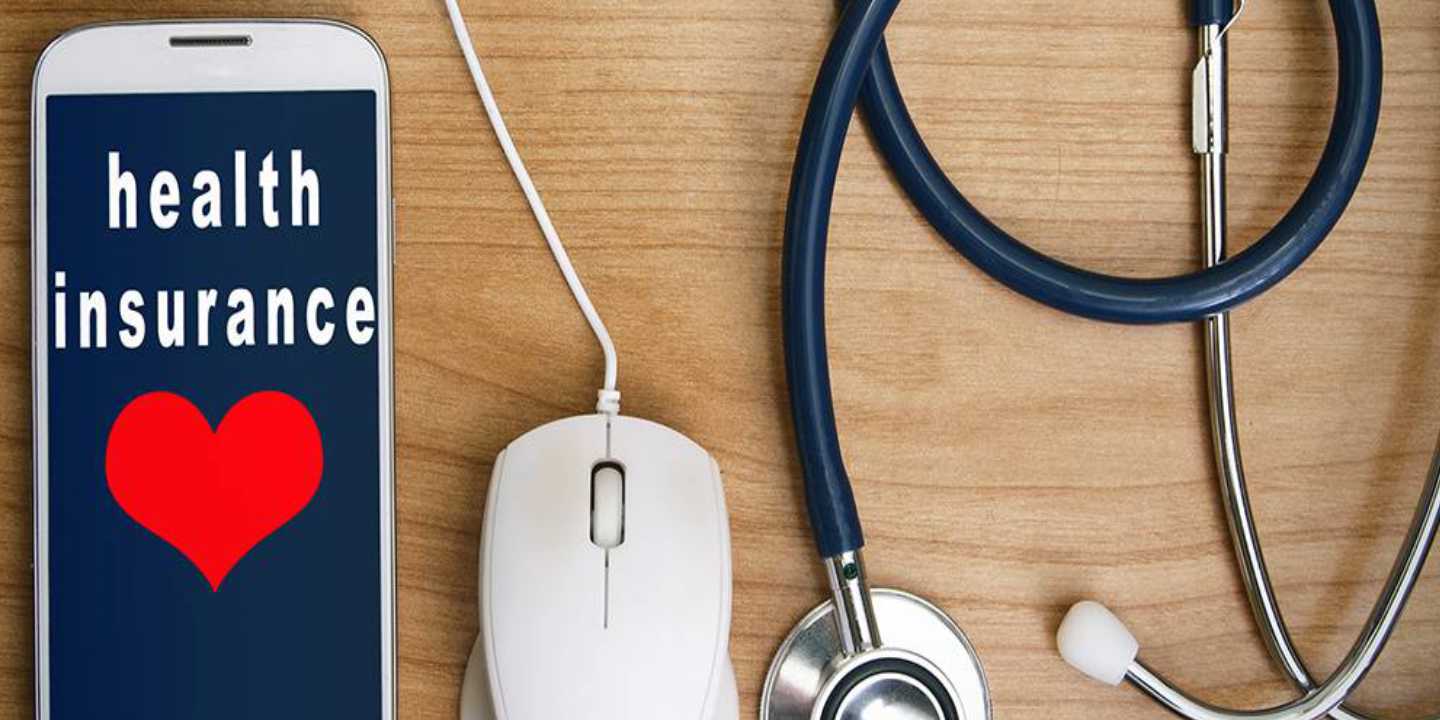
In today's world, health insurance has become an essential requirement for individuals and families. With rising medical costs and the increasing prevalence of lifestyle diseases, having adequate insurance can provide financial security and peace of mind.
READ MORE
With increasing age, susceptibility to various diseases gets higher. Thus, an annual review of health insurance policies can ensure that you have a plan that suits your changing lifestyle. Read to know more.
READ MORE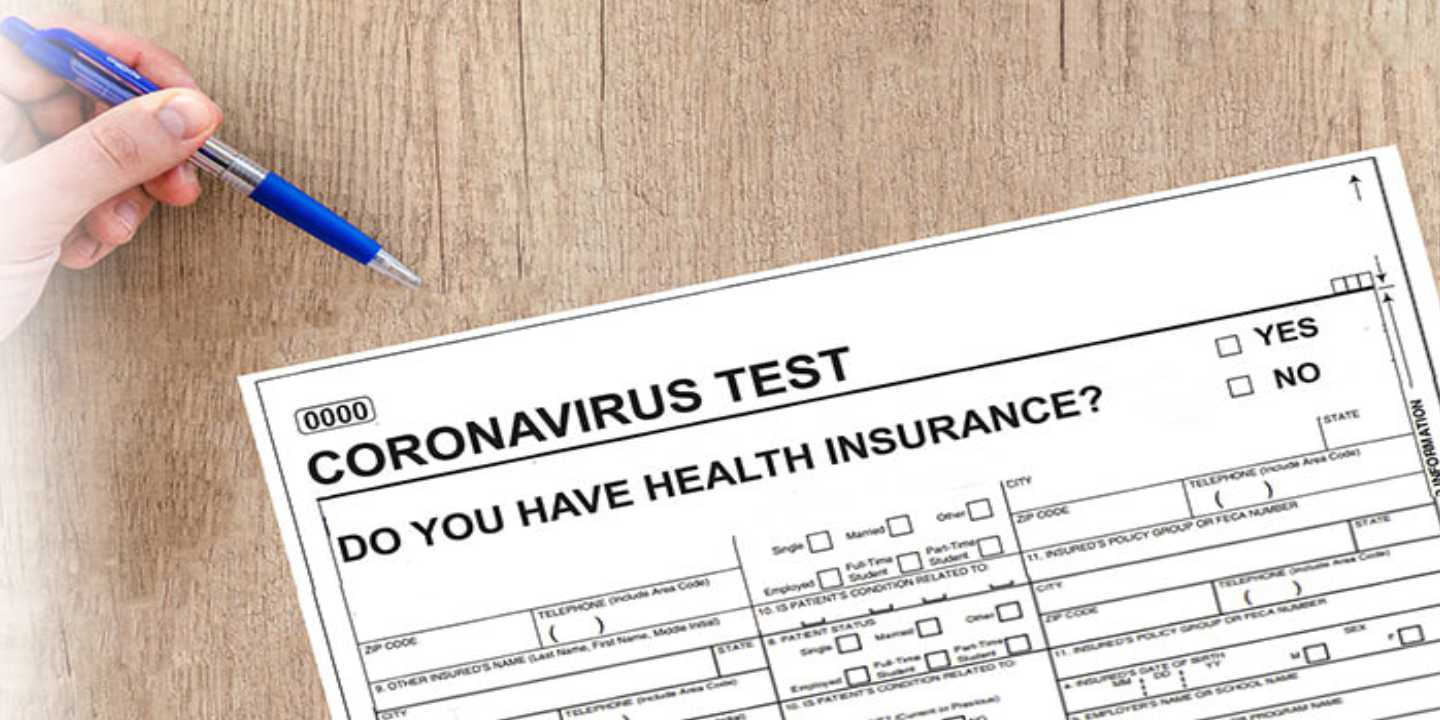
The XBB.1.16 variant of the COVID-19 virus has been identified as a new variant with potentially concerning symptoms and risk factors
READ MORE
Discover the requirements for obtaining group health insurance coverage and confirm that you satisfy them. We've compiled a useful resource to help you understand the insurance market, including enrollment deadlines and coverage alternatives.
READ MORE
Importance Of Health Insurance For Low And Middle Income Groups
READ MORE
A resolution for all of us in 2021 should be to financially prepare by buying health insurance plan online. Click here to know what makes health insurance an important policy to buy in 2021.
READ MORE
It is difficult to manage a health insurance plan from your savings if you have lost your job. Read the article & know about different ways to get affordable job loss insurance India
READ MORE
Shop health insurance in India only after thoroughly reviewing the policy's features. Read the article to learn about the modern features of Indian health
READ MORE
Get an insight of critical illness plan and the benefits of critical illness policy
READ MORE
Rapidly falling oxygen saturation levels were the most noticeable concern among COVID patients. So, here are a few tips to increase oxygen levels with simple practices like correct breathing. Know more.
READ MORE
Family healthcare insurance is a type of insurance that covers medical expenses for your entire family. It can be a lifesaver in times of need and provide financial stability for your family. Read the article to learn more.
READ MORE
Health insurance for single parent comes with many financial benefits, for both the parent & the child. Click here to know, how to choose the best health insurance for single parent.
READ MORE
Niva Bupa offers behavioral assistance program & covers counselling sessions to provide support, lifestyle, stress, child and parenting, Give that stress a rest with Niva Bupa's insurance plans.
READ MORE
To learn more about that how to identify hypertension in ageing parents and signs and symptoms of hypertension and how to spot the signs of hypertension.
READ MORE
It is vital to understand the importance of taking a healthy diet after covid-19 jab. Read the full article to know about healthy foods that you can consume post-vaccination.
READ MORE
Women's health is an untapped space when it comes to covering medical expenses. This article explains why it is essential for every woman to sign up for a health insurance policy in India.
READ MORE
Accident Insurance is a form of insurance that provides financial coverage to individuals in the event of an accidental injury.
READ MORE
Health Insurance: Why You Need to Start Early
READ MORE
Know the significance and benefits of having a health plan. This article provides you a deep knowledge about the same.
READ MORE
A personal accident insurance policy provides complete financial coverage to policyholders in case of accidental death, bodily injuries and physical disabilities (temporary and permanent).
READ MORE
Reading terms & conditions might be boring, but it is very crucial also. Click here to know why it is vital to read the terms & conditions thoroughly before you finalize health insurance policy.
READ MORE
It has become important to provide your mother with advanced medical care & treatment if she faces any health issues. Know about the reasons why health insurance is important for your mother.
READ MORE
It’s important to know family health insurance and its benefits. Read out the things to remember before buying health Insurance Plans for a Family.
READ MORE
Niva Bupa offers different health insurance policies depending upon the needs of the users. Choose from a wide range of health insurance policies like an individual health insurance policy, family floater policy, etc. Know more.
READ MORE
There are certain guidelines for Selecting the Best Health Insurance Policy such as Select and Review the Coverage Wisely, Look for a Cashless Network, and many more. Before selecting health insurance make sure to follow each guideline.
READ MORE
Many assume either a health insurance plan or critical illness insurance policy is enough of a cover. However, it is imminent to equip yourself with both and here is why.
READ MORE
Know all about Personal Accident Insurance in this article. This article provides you with all the information from why you should buy the personal accident insurance to its benefits.
READ MORE
Get a deep insight on health insurance policy renewal , medical policy renewal and the factors to think about before renewing your health insurance policy.
READ MORE
This article gives an insight of what Cashless Mediclaim is, how it works and the different types of Cashless Mediclaim. Read the article to know more about it.
READ MORE
Chronic conditions, characterised by long-lasting and often progressive symptoms, can significantly impact the health insurance plans of individuals who suffer from them. Read the article to know more.
READ MORE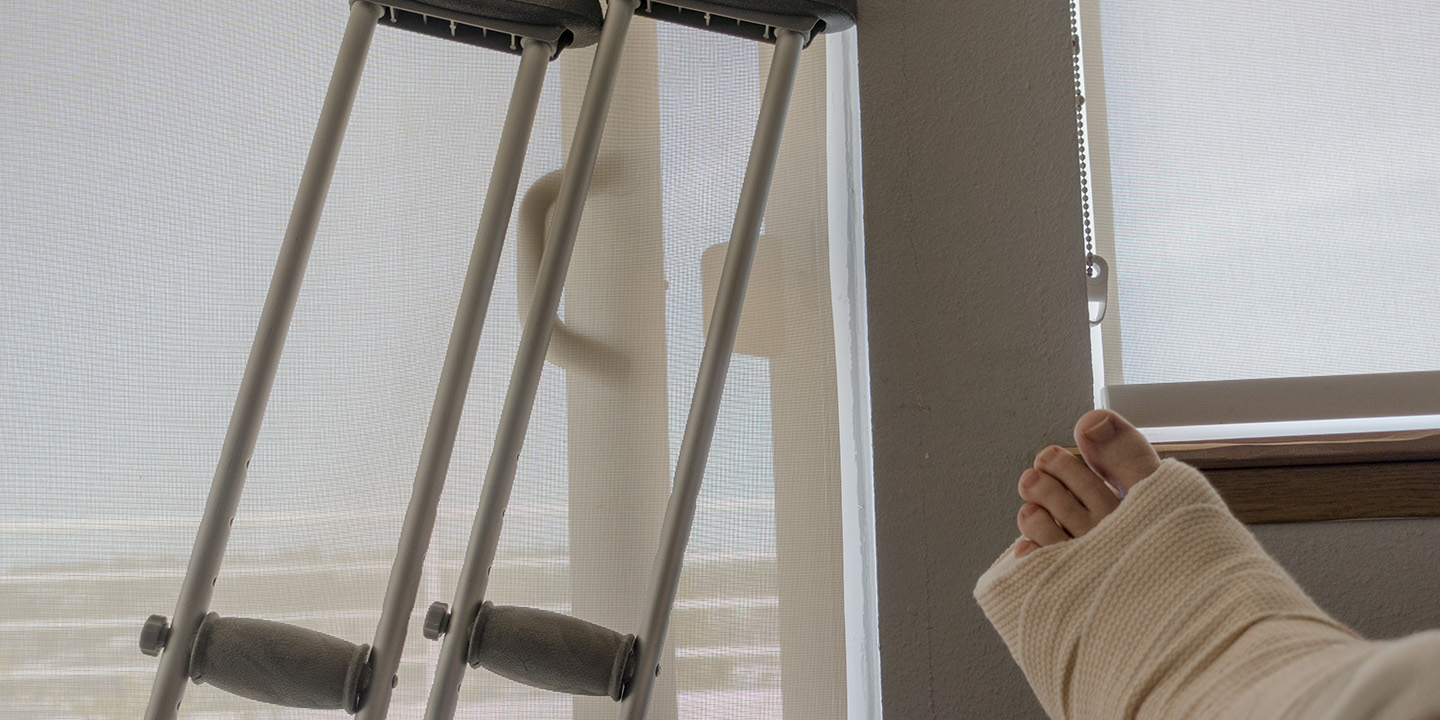
know about personal accident insurance, its benefits and the 5 prime reasons for buying it.
READ MORE
When it comes to choosing the right family health insurance plans it is important to know its benefits and how to choose it. Read the article to know more about it.
READ MORE
Many purchase a health plan without understanding if it would suit them. The comprehensive information in this article will make it easier for you to buy a mediclaim policy for your family.
READ MORE
Medical insurance for senior citizens ensures that they get the best medical treatment. Get cashless hospitalization facility for senior citizens & take care of their medical needs & requirements.
READ MORE
This blog will help you understand how health insurance for cancer treatment can help you manage the cost of care and provide you access to the top cancer hospitals in India.
READ MORE
This year many top health insurance plans have been brought up by many companies. A few of them are listed in this article. Read this article to get a deep insight.
READ MORE
Re-evaluate family health insurance plans & stay well-informed about latest market offerings. Read the article & know more about how to re-evaluate family health insurance plans.
READ MORE
When choosing a health insurance plan, there are many factors to consider. Finding a plan that meets your needs and fits your budget is crucial. Read the entire article to know about the top reasons to choose a health insurance plan.
READ MORE
know about critical illness., its benefits and things to consider before buying it along with the necessity.
READ MORE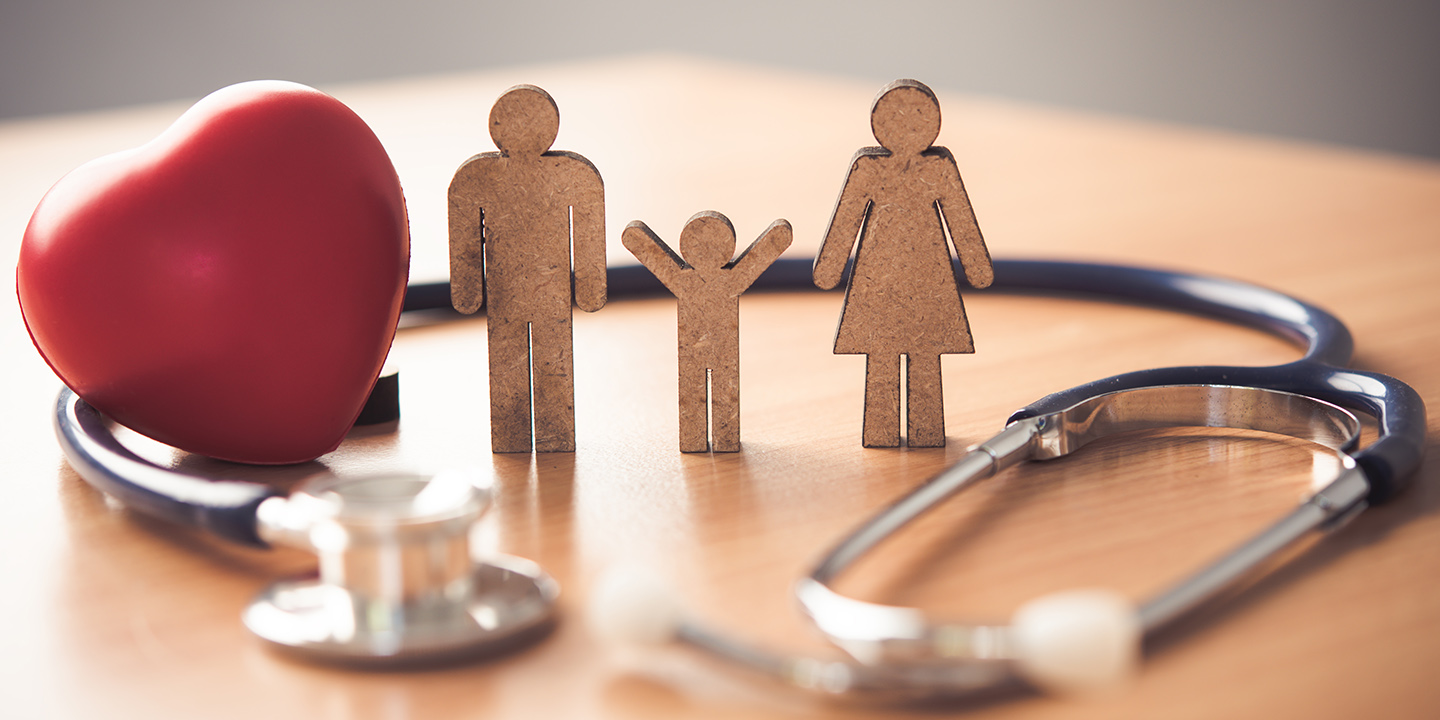
Are you paying for your healthcare insurance? If so, you might be eligible for a health insurance deduction which means you can save money on your income tax return. Read the article to know more about this.
READ MORE
People might get confused regarding when to buy health insurance. In the article, Niva Bupa has explained the right time for buying a health insurance plan in India. Read more.
READ MORE
Myths and facts related to critical illness insurance plans have always been present. Read further to know which are the myths and which are the facts.
READ MORE
There are numerous health benefits of doing yoga. The article has explained how yoga can also help you in lowering your health insurance cost. Click here to know more.
READ MORE
Know all the benefits and reasons of having a Mediclaim Insurance Policy. Read the article to know more.
READ MORE
Read this article and know everything about health insurance for senior citizens and get their future secured.
READ MORE
Are you looking for the best health insurance plans for senior citizens and are confused which one to buy? Check out NIva Bupa’s Health Insurance Plan for Senior Citizens. Read the article to get a deep insight.
READ MORE
Accident insurance is considered supplemental insurance, and it is most useful when combined with a major medical plan.Read the entire article to know it’s requirement
READ MORE
Malaria is spread in humans through bites of female Anopheles mosquito. Read this article to learn about the symptoms of malaria and how can you prevent mosquito breeding.
READ MORE
Do you know why specifically women need health insurance plans. Read the article to know about this topic.
READ MORE
While choosing a family floater health insurance plan in India, one must perform comprehensive research about the plan's features and benefits. Click here to read more about it.
READ MORE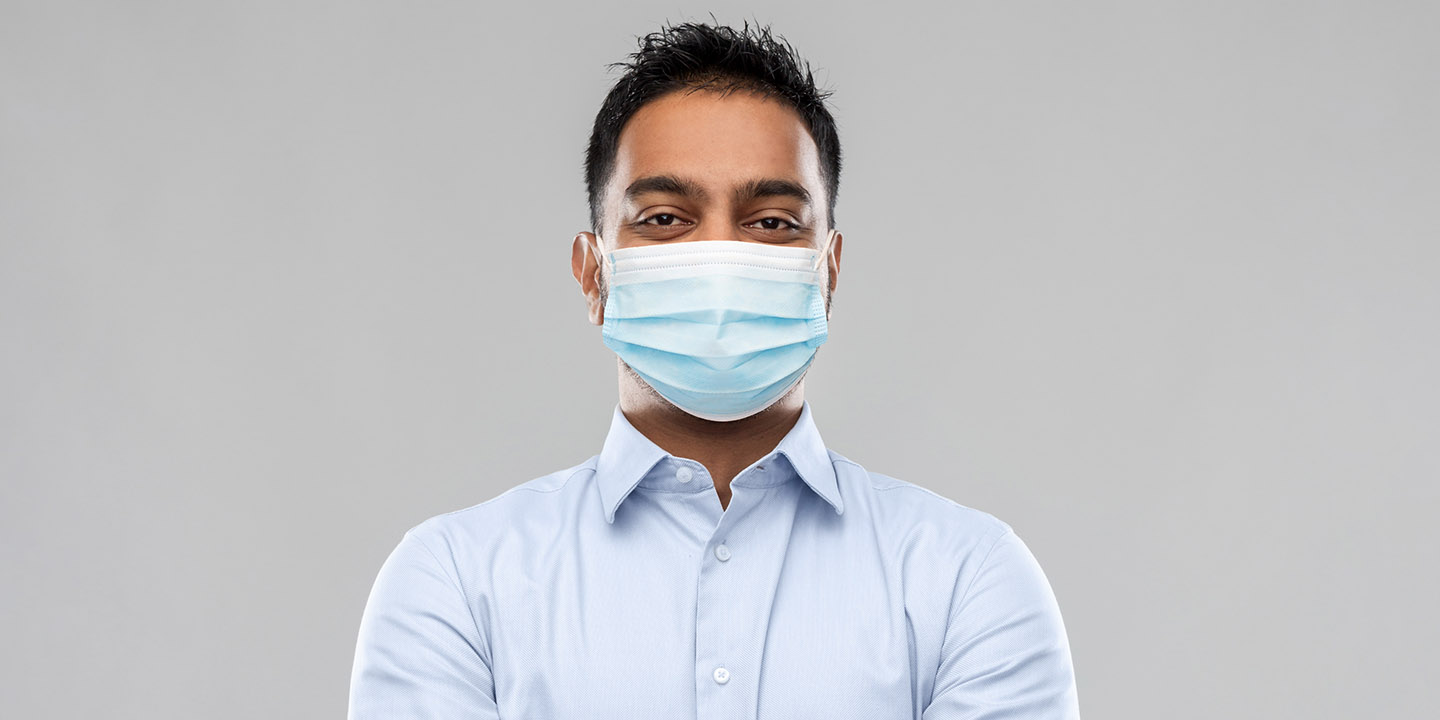
In this article know the need, features and benefits of Corona Kavach Policy and get the future of your family secured.
READ MORE
Get an insight of what is mediclaim policy , its types and benefits. Also know the Factors to Consider Before Buying a Mediclaim Policy
READ MORE
Looking to save more, while keeping your health secure? Here are 7 different ways in which you can save money when buying a health insurance policy. Click to know more.
READ MORE
With a health insurance card, you can pay for hospitalization expenses without any hassles. Read the article to know more about the benefits of health insurance cards in India.
READ MORE
Know everything about health insurance in one article.Starting from the types of health insurance plans to why you need it.
READ MORE
Health insurance plan helps in reducing your financial burden at times of financial crisis & helps in reducing your father's financial stress as well. Click here to read more about it.
READ MORE
Do you know what Corona Kavach policy is? Why should we purchase it and the need to switch Corona Kavach plan to comprehensive health insurance
READ MORE
The Union Budget 2021 has affected different sectors this year. Know how Union Budget has affected the expectations of the health insurance sector.
READ MORE
Health insurance policy grants you the provision of having your medical expenses reimbursed or directly paid in case of a medical emergency.
READ MORE
Are you future ready for your family’s health? Know about the
READ MORE
There are several things to keep in mind before buying a health insurance plan in India. Read this article to know everything in detail.
READ MORE
The most crucial benefit of having a family health plan is that it can save money. It can help to offset the cost of expensive medical treatments and procedures. Read the article to know more about it.
READ MORE
Knowing the benefits and tips to choose the best family mediclaim plans for your family will always be an important part of safeguarding your family's future. Read the entire article to know more about it.
READ MORE
Have a deep insight about mediclaim insurance policy and the factors to consider before buying mediclaim insurance in India.
READ MORE
Simple Ways to Plan for Your Health Insurance
READ MORE
Choose between critical illness insurance and disease specific insurance plan based on your needs & health status. Read this article to know how you can make the right choice.
READ MORE
There are several factors and benefits you must know before choosing a Senior Citizen Health Insurance Plan. Read the article to know all about the topic.
READ MORE
Let’s know the benefits of Family Mediclaim Insurance and reasons to choose it along with the way to choose.
READ MORE
Avail a critical illness insurance plan & protect yourself against critical illnesses like cancer, stroke, heart attack. Know more about the benefits of critical illness insurance plan.
READ MORE
Get a deep insight of health insurance policy, its types, benefits and how to pick the best health health insurance plans in India.
READ MORE
There are 5 major benefits of buying critical illness insurance namely- Financial protection, Comprehensive Coverage, Guaranteed Renewal, Tax Benefits, and No Claim Bonuses. Read the article to know more.
READ MORE
There are several myths about health insurance policy that people have in their minds. This article burst all the myths. Read this article to have a deep insight about the topic.
READ MORE
Choosing the right medical insurance plan is a critical decision that can significantly impact your physical and financial well-being.Read the article to know more about it.
READ MORE
Do you still have questions about health insurance plans? This article provides you answers to all your questions. Read the article to know more.
READ MORE
Read the certain features that are covered under critical illness insurance plan in this article.
READ MORE
Knowing the benefits and tips of choosing the right medicliam plan can help you secure your future. Read this article to know more.
READ MORE
Read this article today to understand the importance of buying a health insurance plan in India & the factors that should be considered before buying a medical policy. Click here to start reading.
READ MORE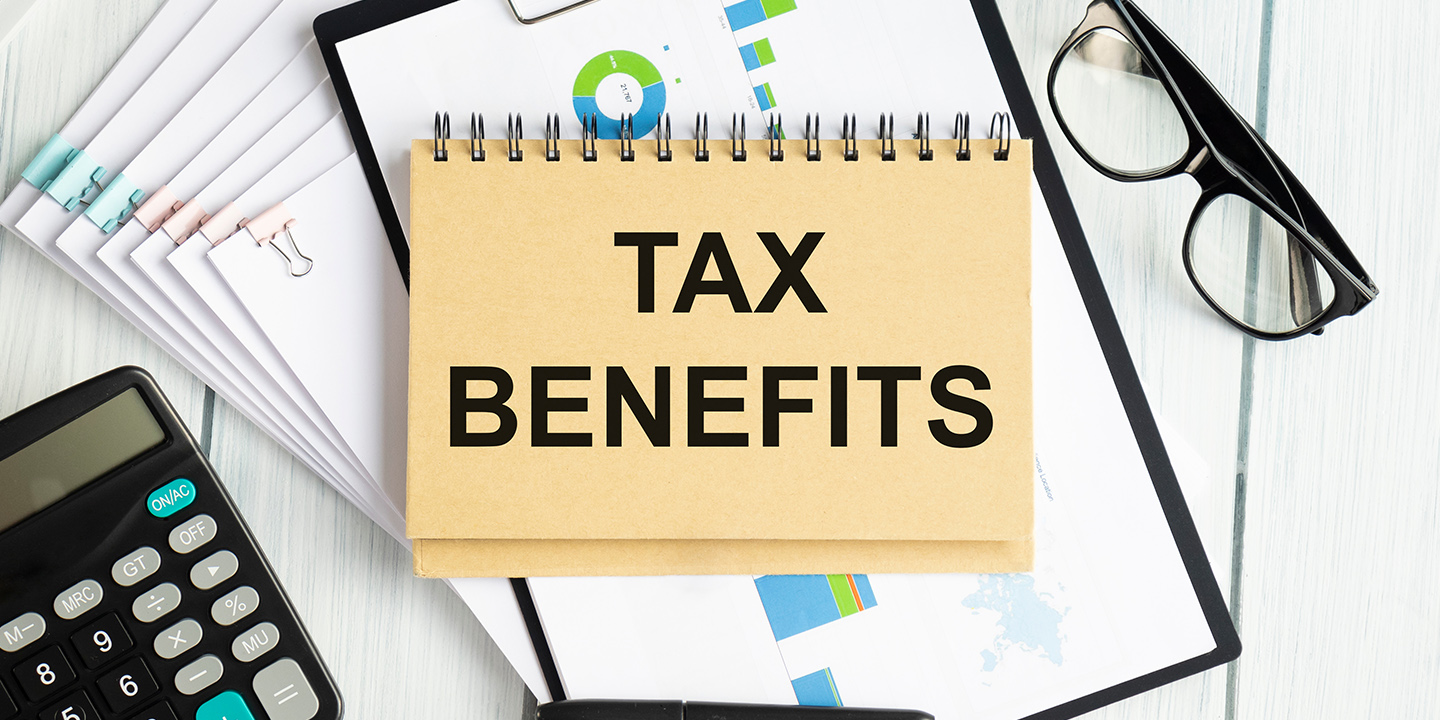
The Indian government has introduced various incentives for medical insurance for parents, such as Section 80D, to make healthcare affordable for everyone.This blog will discuss the features of section 80D and its impact on healthcare insurance plans
READ MORE
This article provides all the information about why we need to choose a health insurance plan and how we can select it. Read the article to know more.
READ MORE
An individual health insurance policy protects the policyholder for medical expenses. Click here to read why it is important to have an individual health insurance plan in India.
READ MORE
Know all the features and advantages of buying senior citizen health insurance plans.
READ MORE
Health insurance is an insurance product which covers medical, surgical and other expenses of an insured individual or family or even a group of people.
READ MORE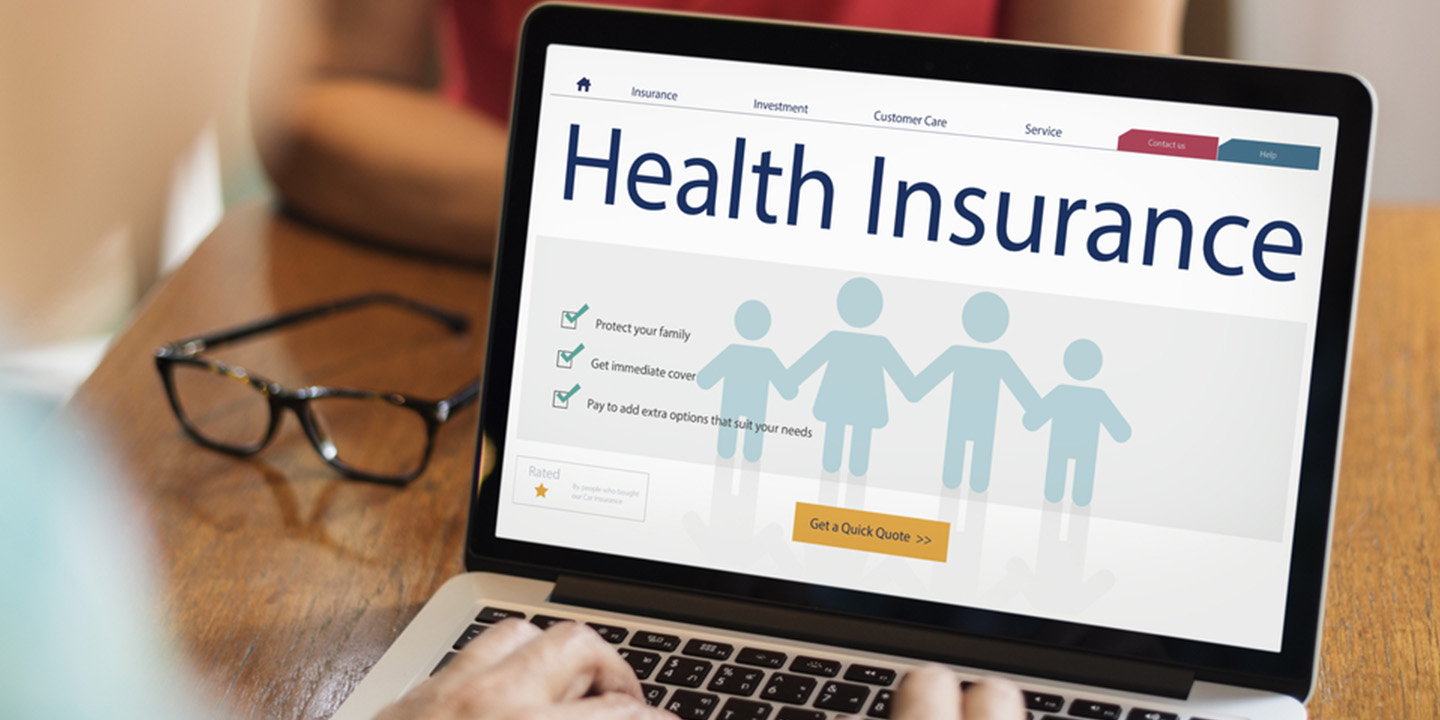
Medical insurance plans are designed to cover a wide range of medical expenses, including hospitalization costs, physician fees, diagnostic tests, prescription drugs, and other medical care.Read the article to more.
READ MORE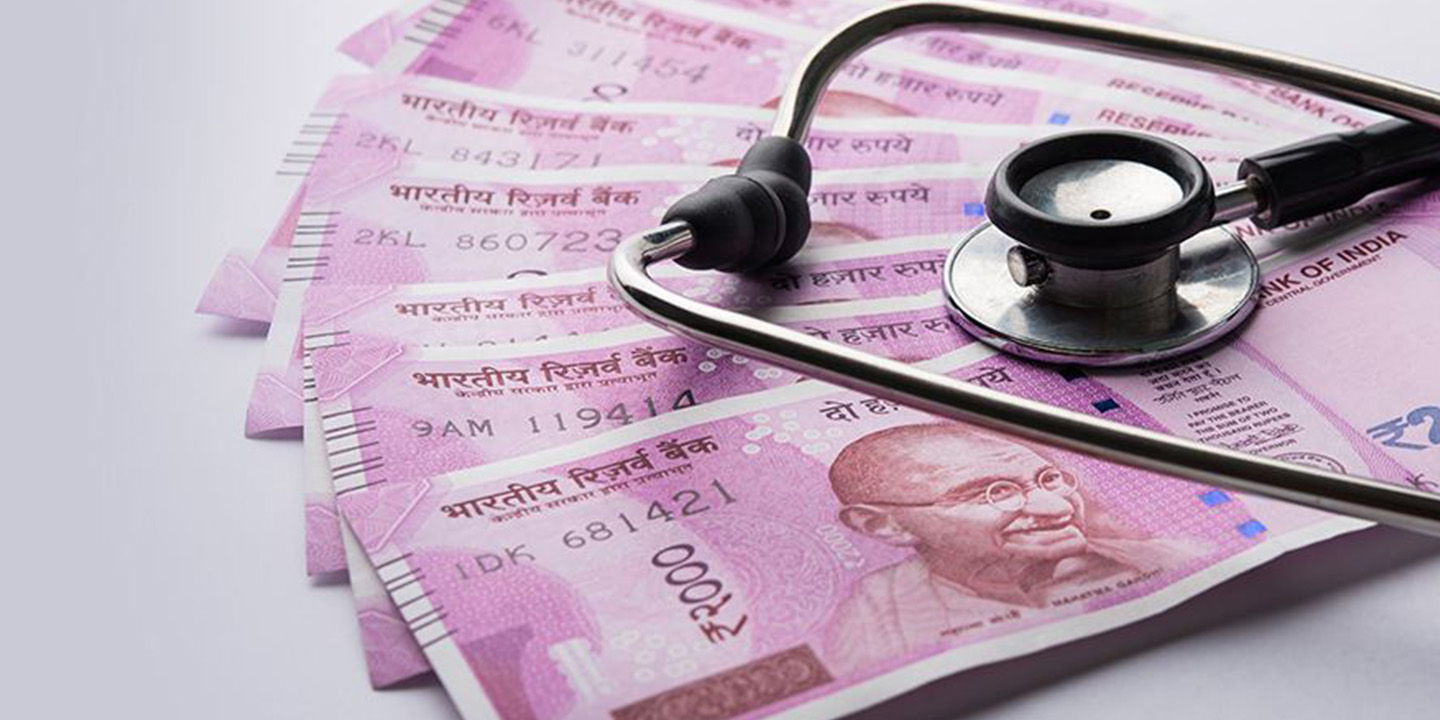
When it comes to financial security in times of health crises; nothing can be more important than having a medical plan. Read the entire blog to know more.
READ MORE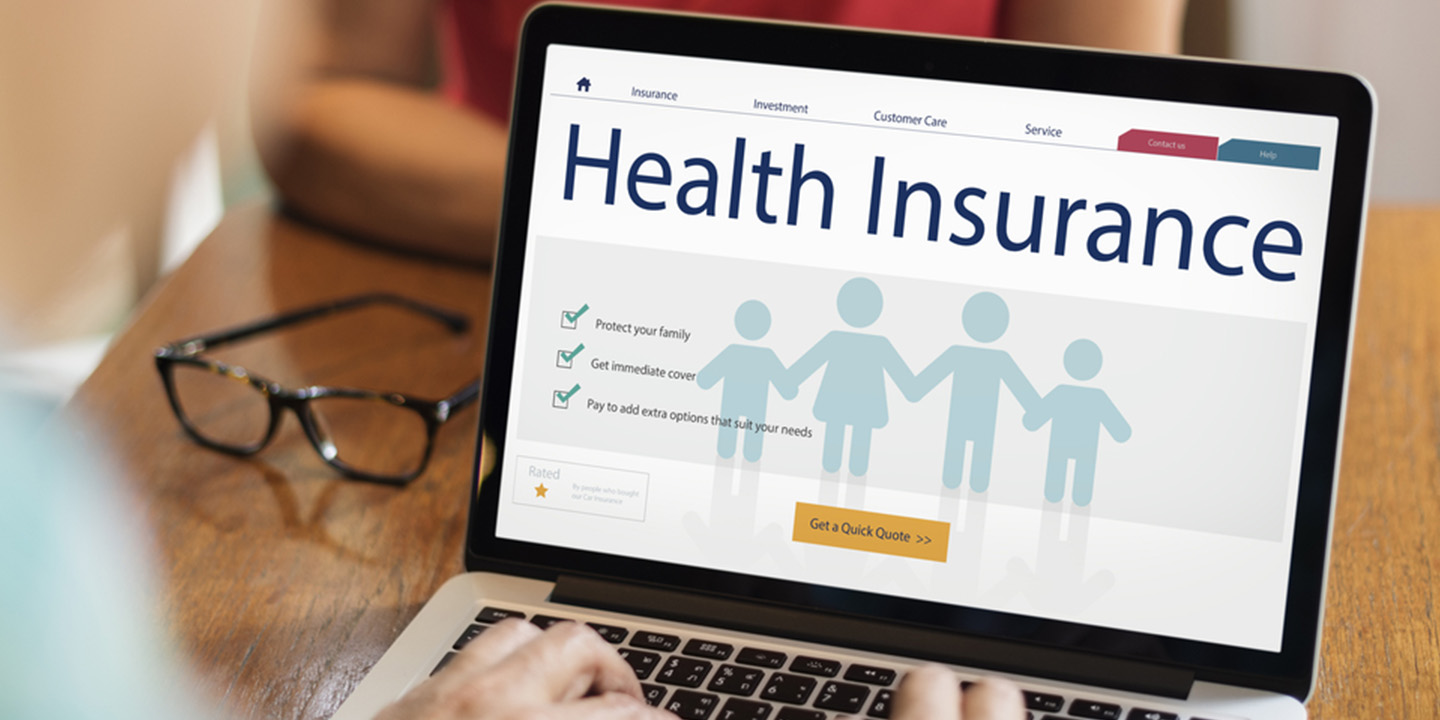
Know all the advantages of buying individual health insurance plans along with the tips of how to choose it in this article
READ MORE
Health insurance proves to be a saving grace as it helps provide financial security in the face of unexpected medical emergencies. Here are some tips for first-time insurance buyers. Read to know more.
READ MORE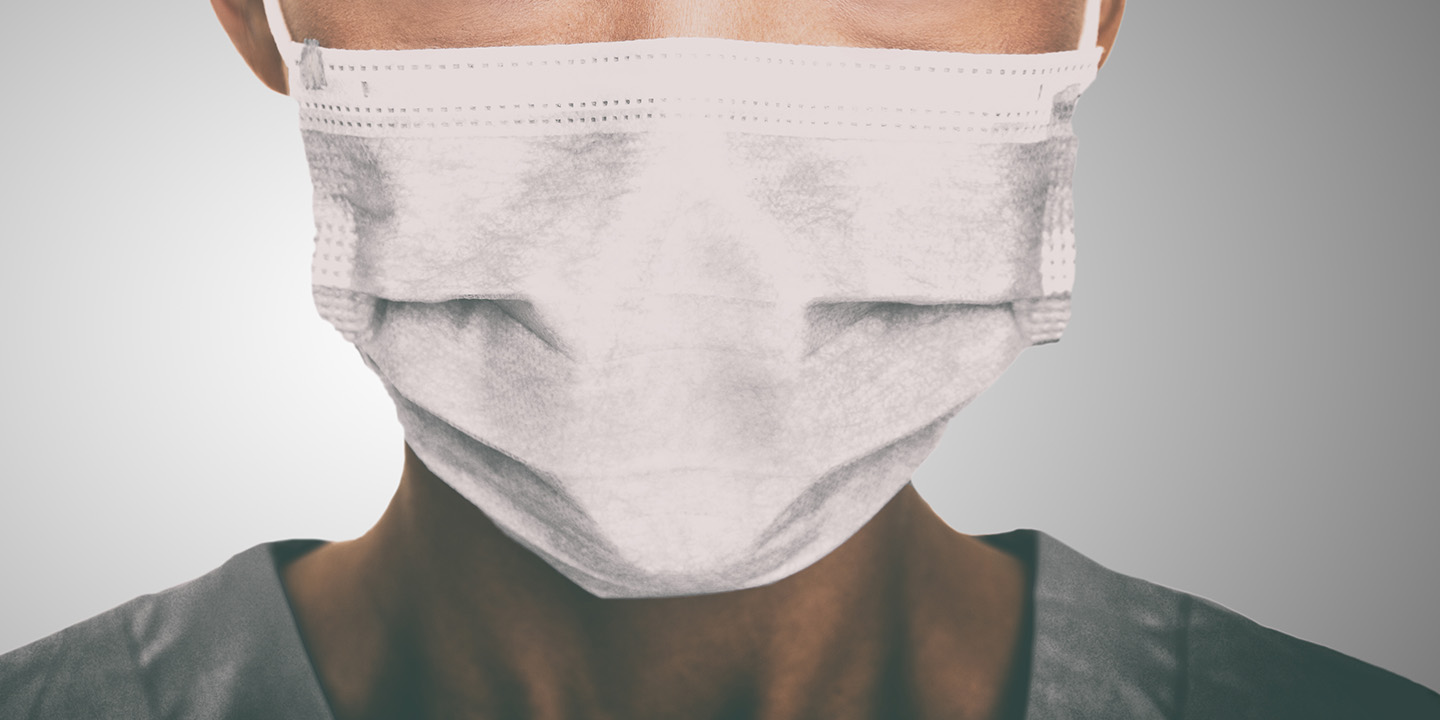
Know everything you need to know about corona kavach policy and medical coverages. Read the article to get a deep insight of the topic.
READ MORE
Know the ways of how you can get the best accident insurance plan. Read the article to get a deep insight of the topic.
READ MORE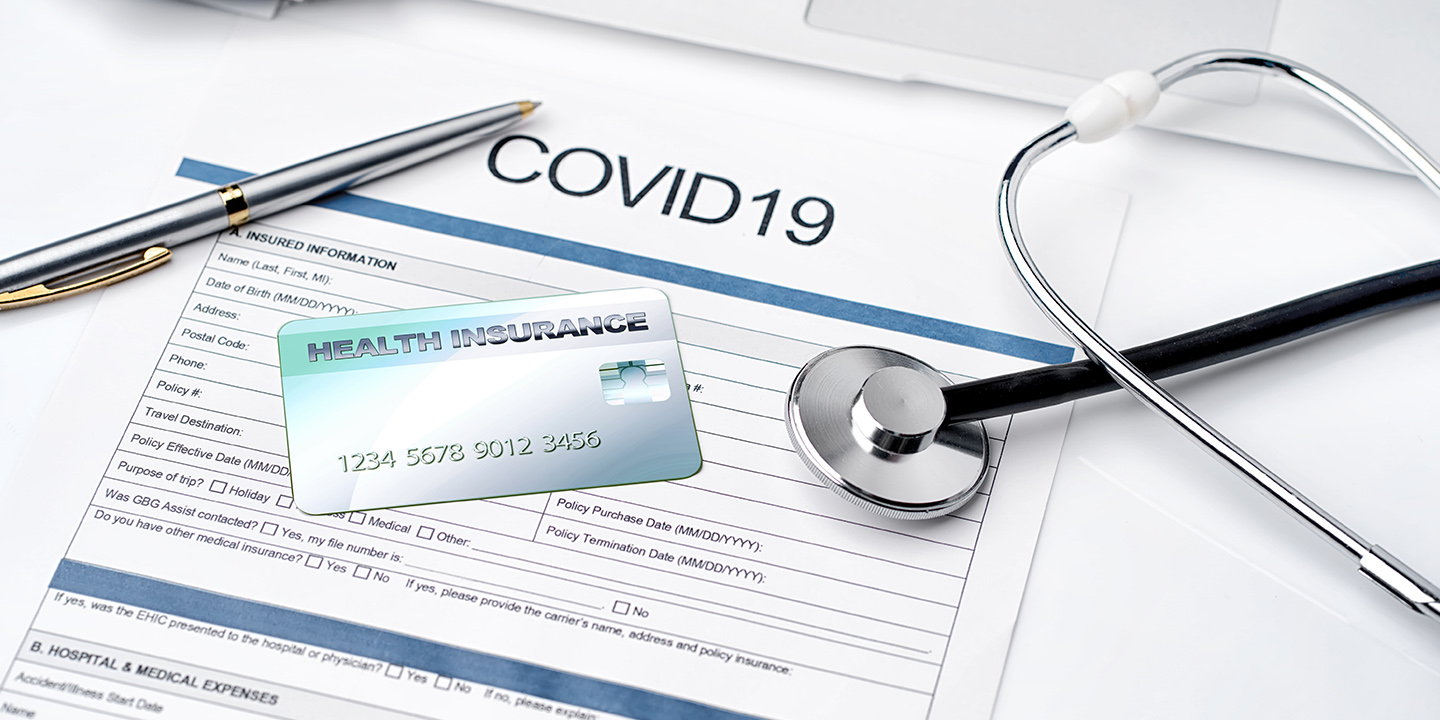
The COVID-19 pandemic has highlighted the significance of being prepared for unforeseen circumstances.Read the article to know more about it.
READ MORE
In this article, we will discuss how to prioritise your health by getting individual health insurance plans and their benefits.
READ MORE
Group Employee insurance is an insurance plan offered to a group of employees working for a small to large-scale organisation. Employees can achieve financial security during medical emergencies with this medical insurance coverage. Read the article to know more.
READ MORE
This article gives an insight of how personal accident insurance policy works in India. Read the article to get a deep insight.
READ MORE
No Claim Bonus Health Insurance is a benefit offered by Niva Bupa health insurance company to policyholders who do not make any claims during the policy period
READ MORE
Before buying any family health insurance, you should understand the impact of a family's size on the cost of a family health insurance plan. This blog will discuss the same.
READ MORE
Do you know what a health insurance policy is? Why do we need it and how can we choose the best health insurance policy? Read this article and get your questions cleared.
READ MORE
This blog will discuss the benefits of having health insurance plans in India and the dos and don’ts to consider while buying the best health insurance plans in India.
READ MORE
The Employee State Insurance Act is a scheme governed by Employee State Insurance Corporation(ESIC) under ESI Act 1948. Read the article to have a deep insight about the topic.
READ MORE
Do you know What is Senior Citizen Mediclaim and its benefits along with the Need for Medical Insurance for Senior Citizens?
READ MORE
Health insurance migration is a term used to describe the ability of an individual to transfer their health policy from one insurance provider to another without losing their policy benefits
READ MORE
It is important to have a comprehensive health insurance. Know all about the types of health insurance, it's benefits & understand how to make the best of your medical insurance policy.
READ MORE
Premium is an important factor while buying a health insurance policy. Read the article to know about the different factors that impact health insurance premium in India.
READ MORE
We all should consider adding a personal accident cover to our health insurance plan. Hence, you must consult your insurance provider before selecting a policy. Know more.
READ MORE
Millennials are expected to have worse health problems than their parents. Read the article to understand why health insurance is a necessity & best investment option for millennials.
READ MORE
It is not always the right choice to buy an expensive health insurance policy. Sometimes a cheaper policy might work too. Get to know about how to choose cheapest health insurance plan.
READ MORE
Elder people are more vulnerable to coronavirus pandemic. The article explains the different ways in which you can protect your parents/elder people from coronavirus. Know more.
READ MORE
Does your health insurance offers coronavirus cover? In the article, Niva Bupa has explained how to identify whether coronavirus is covered by your health insurance plan or not.
READ MORE
It is important to ensure that your children get the best healthcare possible when they need it. Buy health insurance for children & protect your children.
READ MORE
Individual health insurance plan covers a single person & offers financial protection during health emergencies. Benefits include hospitalization coverage, OPD coverage, etc.
READ MORE
As Covid-19 numbers are rising, it is important that you look at some of the tips to buy a health insurance plan for coronavirus, that ensures financial security for you and your loved ones
READ MORE
Understand the concept of maternity benefit and its significance with Niva Bupa. Explore the range of maternity benefits provided by health insurance plans, including pre and postnatal care, delivery expenses, and newborn coverage.
READ MORE
Discover the requirements for obtaining group health insurance coverage and confirm that you satisfy them. We've compiled a useful resource to help you understand the insurance market, including enrollment deadlines and coverage alternatives.
READ MORE
Read about the Advantages and Disadvantages of Corporate Health Insurance plans in India. Check out the difference between Corporate & Individual Health Insurance plans.
READ MORE
Explore 5 economical health insurance plans for senior citizens with Niva Bupa. Ensure comprehensive coverage and peace of mind for your loved ones today.
READ MORE
Learn about the benefits of senior Mediclaim Insurance, including its thorough coverage, reasonable rates, and specialised healthcare alternatives.
READ MORE
The Employee State Insurance Act is a scheme governed by Employee State Insurance Corporation(ESIC) under ESI Act 1948. Read the article to have a deep insight about the topic.
READ MORE
Explore the differences between Mediclaim and Health Insurance to make informed decisions about your coverage. Learn about the features, benefits, and nuances of each option for better financial protection and healthcare support.
READ MORE
Do you know buying health insurance on an EMI is a smart way of gaining higher health insurance coverage and quality treatment for your medical needs. Read this article to know more.
READ MORE
Incurred Claim Ratio (ICR) is the ratio of net claims provided by an insurance provider to the net premiums received in a financial year. With ICR you can have a good idea about the financial health of a company.
READ MORE
Understand the concept of maternity benefit and its significance with Niva Bupa. Explore the range of maternity benefits provided by health insurance plans, including pre and postnatal care, delivery expenses, and newborn coverage.
READ MORE
No Claim Bonus Health Insurance is a benefit offered by Niva Bupa health insurance company to policyholders who do not make any claims during the policy period
READ MORE
It's true that most of the health insurance providers give total knee replacment health insurance in their plans. But to know more in detail read this article about total knee replacement surgery.
READ MORE
Yes, IVF treatment is covered in Health Insurance .Explore the options provided by Niva Bupa. Uncover the details of IVF insurance plans. Learn how to secure insurance for IVF treatment and fertility treatments, ensuring financial support and peace of mind with Niva Bupa.
READ MORE
The article explains the room rent limit in health insurance. Understand all about room capping in health insurance, different types of room rent coverages & how it affects insurance claims.
READ MORE
A super top-up health plan covers the total hospital bills up to the limit specified in your super top-up helth insurance plan. Know all about super top up health insurance plans in India.
READ MORE
Network hospitals play a key role in providing quality healthcare. Understand how & why network hospitals play an important role in health insurance.
READ MORE
Depending on the number of people you intend to cover with your health insurance policy, make a choice between group health insurance and individual health insurance plan. Know more.
READ MORE
Importance Of Health Insurance For Low And Middle Income Groups
READ MORE
Present the bills, prescriptions, discharge summary and other necessary documents when you request for reimbursement. Download & fill the reimbursement form, available on the insurance website. This is how to claim health insurance
READ MORE
In the article, Niva Bupa has explained how you can avail free medical checkup as part of your health insurance policy and things to look out for. Click here to read more about it.
READ MORE
Before choosing a mediclaim insurance policy, it is important to know what is covered and what is not. This article explains, what has covered & not covered under a mediclaim policy.
READ MORE
Medical insurance for senior citizens ensures that they get the best medical treatment. Get cashless hospitalization facility for senior citizens & take care of their medical needs & requirements.
READ MORE
Do you know What is Senior Citizen Mediclaim and its benefits along with the Need for Medical Insurance for Senior Citizens?
READ MORE
Know all the features and advantages of buying senior citizen health insurance plans.
READ MORE
Health Insurance Plan for Diabetics: Patients in India find it overwhelming to find the right diabetes health insurance plan. Get to know about diabetes, types & causes of diabetes, preventive measures, etc.
READ MORE
Group Employee insurance is an insurance plan offered to a group of employees working for a small to large-scale organisation. Employees can achieve financial security during medical emergencies with this medical insurance coverage. Read the article to know more.
READ MORE
Health Recharge is a plan offered by Niva Bupa, which provides a sum insured ranging from ₹ 2 lakhs to ₹ 95 lakhs. Read to know more.
READ MORE
The Aarogya Sanjeevani Policy is a basic health insurance policy for individuals and families that covers basic hospitalization expenses up to Rs 5 lakh. Click here to read more about it.
READ MORE
Medical emergencies generally exhaust most of our savings, so it is suggested to have a health insurance to secure the future. Read the article to know the importance of insurance.
READ MORE
Niva Bupa ensures that health insurance claim procedures are processed as quickly as possible & has 89% claims ratio which a reason and result of the trust of many, when it comes to claims processing.
READ MORE
This article explains what a sub-limit in health insurance policies is, and things to look for in the sub-limits of your policy of choice. Click here for further details.
READ MORE
What is copay in health insurance? A very common question is anwered in this article. Read the article to know about it.
READ MORE
If you want to purchase a good health insurance plan for your grandparents, consider investing in an insurance policy that is best suited for senior citizens. Read more about health insurance policies for senior citizens.
READ MORE
If you are thinking of purchasing health insurance for all members of your family, a family floater plan might work out to be more economical and beneficial.
READ MORE
Read about the Corona 19 vaccine, check out who can take covid 19 vaccine and how to register for covid vaccination and its process. Know about the commodities that make you eligible for vaccination.
READ MORE
Recognize the benefits that auto recharge mediclaim coverage provides to policyholders. The article highlights the benefits of medical insurance coverage.
READ MORE
To know more about how breathing exercises can improve the lower BP & risk of a heart attack in senior citizens and how you can maintain BP levels.
READ MORE
Without Health Insurance, it is difficult to bear the financial expenses of kidney treatment. A critical Illness Insurance plan can provide a lump sum amount to meet the costs of treatment, care & diagnosis of kidney disease. Know more about the importance of critical illness insurance for kidney failure treatment
READ MORE
Discover why adding parents to your existing health cover may not be advised. Understand the potential drawbacks and complexities involved in adding parents to your policy with Niva Bupa.
READ MORE
What You Need to Know Before Buying Health Insurance
READ MORE
As Covid-19 numbers are rising, it is important that you look at some of the tips to buy a health insurance plan for coronavirus, that ensures financial security for you and your loved ones
READ MORE
Avail a critical illness insurance plan & protect yourself against critical illnesses like cancer, stroke, heart attack. Know more about the benefits of critical illness insurance plan.
READ MORE
Coronavirus has been found to affect kidney patients. In the article, Niva Bupa has explained how Covid-19 has severely impacted kidney patients. Read to know more.
READ MORE
With Niva Bupa health insurance for senior citizens get your parents future completely secured. Read the article to know more about it.
READ MORE
Claim Settlement Ratio is the percentage of claims that an insurance company settles during a year. The claim settlement ratio process indicates an insurance company's potential to pay the sum insured to the policyholder. Know about the importance of CSR & how to calculate claim settlement ratio.
READ MORE
There is no age limit to buy health inusrance for parents but as the age increases the benefits varry according to your plan. Niva Bupa explains about the same in the given article .Read the article to get a deep insight.
READ MORE
Micro Insurance is a sort of insurance that is specifically designed for assets that are less valuable, for those making modest incomes, and for people with incredibly tiny savings.
READ MORE
The recharge benefit in a health insurance plan is often the best way to ensure that you are never unprepared in case a medical emergency crops up unexpectedly. Click here to know more.
READ MORE
Elder people are more vulnerable to coronavirus pandemic. The article explains the different ways in which you can protect your parents/elder people from coronavirus. Know more.
READ MORE
Despite its horrific nature, the coronavirus is not one of the top 10 deadliest illnesses. Here is a list of the most serious illnesses that you need to be aware of.
READ MORE
Is Health Insurance Available for Insulin-Dependent Diabetes?
READ MORE
It has become important to provide your mother with advanced medical care & treatment if she faces any health issues. Know about the reasons why health insurance is important for your mother.
READ MORE
People & insurance companies have recognized the importance of mental health. So, most insurance plans now include coverage for mental illness. Know about mental illness cover in health insurance, exclusions of mental illness insurance, diseases covered under health insurance for mental illness, etc.
READ MORE
Comparing & buying a critical illness plan is not easy. The article explains the components of a critical illness insurance plan & what you should look out for while comparing them.
READ MORE
Consider these 8 pillars of health insurance if you are buying insurance for first time. Read the article & know about the pillars of health insurance that should be considered before buying a policy.
READ MORE
Patients with Hypertension need health insurance to reduce stress & to make sure that they receive quality healthcare treatment. The article explains why hypertension patients need health insurance.
READ MORE
Do you know that your gender can affect your health insurance premium in India? Read the article to know how does your gender affects health insurance premiums.
READ MORE
Choose between critical illness insurance and disease specific insurance plan based on your needs & health status. Read this article to know how you can make the right choice.
READ MORE
Renewing health insurance is important as it allows the policyholder to receive continued benefits. Before renewing health insurance, read about 5 things you should check.
READ MORE
Myths and facts related to critical illness insurance plans have always been present. Read further to know which are the myths and which are the facts.
READ MORE
Many assume either a health insurance plan or critical illness insurance policy is enough of a cover. However, it is imminent to equip yourself with both and here is why.
READ MORE
Picking the right health insurance for employees is crucial to keep their financial & health goals align. Read & know how to choose the right health insurance policy for your employees
READ MORE
Health insurance plan helps in reducing your financial burden at times of financial crisis & helps in reducing your father's financial stress as well. Click here to read more about it.
READ MORE
People have been largely confined to houses by the ongoing COVID-19 outbreak. Read and find out how to manage your stress, mental health, and anxiety.
READ MORE
Health insurance migration is a term used to describe the ability of an individual to transfer their health policy from one insurance provider to another without losing their policy benefits
READ MORE
No Claim Bonus Health Insurance is a benefit offered by Niva Bupa health insurance company to policyholders who do not make any claims during the policy period
READ MORE
Read this article today to understand the importance of buying a health insurance plan in India & the factors that should be considered before buying a medical policy. Click here to start reading.
READ MORE
Ayushman Bharat Yojana scheme (PMJAY) is the largest in the world in terms of health insurance. Read the article to know more about the Ayushman Bharat yojana benefits.
READ MORE
Understanding the difference between incurred claim ratio and claim settlement ratio is key to knowing which insurance company is best suited for your health insurance needs.
READ MORE
In practically every country today, deadliest disease and stroke have emerged as the main causes of health concerns. Some of the most deadly illnesses are affected.
READ MORE
Malaria is spread in humans through bites of female Anopheles mosquito. Read this article to learn about the symptoms of malaria and how can you prevent mosquito breeding.
READ MORE
COPD is a medical condition that includes a host of respiratory diseases. Niva Bupa offers the best health insurance plan for COPD & how it is helpful for COPD patients.
READ MORE
For many people, having a health insurance plan for family has become a priority. Read the article and understand why is buying a family health insurance plan so important nowadays.
READ MORE
Studies have shown that waist-to-hip ratio can predict the probability of developing health concerns. Read this article to know, what is waist-to-hip ratio, and how it affects your health?
READ MORE
Mediclaim is a health insurance policy in which the insurer reimburses the policyholder for medical expenses. Buying a Mediclaim insurance plan might help you obtain financial aid in an emergency.
READ MORE
Despite safety precautions, a construction site can be a dangerous place. In this article, we have discussed the importance of personal accident insurance in the construction sector. Read more.
READ MORE
Know about the different types of health insurance add-ons you can choose from. Read the article and know about 5 add-on covers that can help you in improving your health insurance cover.
READ MORE
Understand the various benefits offered by a family floater health insurance policy & know who should buy it in India. Click here to know more about it.
READ MORE
Looking to save more, while keeping your health secure? Here are 7 different ways in which you can save money when buying a health insurance policy. Click to know more.
READ MORE
There are numerous health benefits of doing yoga. The article has explained how yoga can also help you in lowering your health insurance cost. Click here to know more.
READ MORE
It is important to have a comprehensive health insurance. Know all about the types of health insurance, it's benefits & understand how to make the best of your medical insurance policy.
READ MORE
Know about about mediclaim policy and find important factors of Mediclaim Policy, Types, Inclusions & Exclusions of Mediclaim Policy. Read more about the Rules & Regulations, Claim to settlement ratio and lots more.
READ MORE
To know more about the health insurance value and why should you buy a health insurance, what are the benefits of buying a health insurance plan and how you can invest in it.
READ MORE
To read more why the medical test is important while buying a health insurance policy and benefits of buying or claiming a medical policy without medical test.
READ MORE
Understand the difference, benefits, and disadvantages of short term health insurance & long term health insurance. As per requirements, opt for a long term or short term health insurance policy.
READ MORE
To know more about the insurance and reasons to buy health insurance policy, read this article and have a deep insight for the same.
READ MORE
Mistakes made while buying a health insurance plan can land you in a tough spot. Make sure that you avoid these mistakes while buying health insurance plan.
READ MORE
To have a secure future for you and your spouse, it is vital to make important changes in your health insurance policy after marriage. Read to know more about it.
READ MORE
Your current health insurance might not be sufficient to take care of your future healthcare needs. Know how to enhance your existing health insurance plan & get more benefits.
READ MORE
With a health insurance card, you can pay for hospitalization expenses without any hassles. Read the article to know more about the benefits of health insurance cards in India.
READ MORE-in-Health-Insurance.jpg)
The AI technology has been making things faster and easier for many of us. Read to know how artificial intelligence has an impact on the health insurance industry now.
READ MORE
Yes, you can buy health insurance for new born baby. Discover the options of buying health insurance for a new-born baby with Niva Bupa.
READ MORE
Buying a health insurance plan is one of the best things you can do for your health. In the article, Niva Bupa has explained the different benefits of buying a health insurance policy. Know more.
READ MORE
Reading terms & conditions might be boring, but it is very crucial also. Click here to know why it is vital to read the terms & conditions thoroughly before you finalize health insurance policy.
READ MORE
Health insurance migration is a term used to describe the ability of an individual to transfer their health policy from one insurance provider to another without losing their policy benefits
READ MORE
Health insurance can be availed in different ways by physically & mentally disabled people. Know about the plans offered by government for physical & mentally disabled people.
READ MORE
IRDAI stated that every health insurance plan covering the treatment of Coronavirus issued by different health insurance companies must also cover the treatment of Omicron. Indemnity health insurance policy covers Omicron infection treatment. Read to know if Omicron is covered under your existing health insurance.
READ MORE
Before you buy health insurance, you must have often wondered about the right age to buy the same. Typically, people think that they need to buy a health insurance policy only when they start ageing, or when their health begins to deteriorate. The biggest fallacy, believed in by some people, is that they don’t need to buy a health insurance plan, while they are young and healthy. But, market experts advise that the right age to buy health insurance plans is at a relatively younger age i.e. in between 18-25, while you are in sound health. Besides, the millennials of the present age are at a high risk of lifestyle diseases, like hypertension, obesity, diabetes, and cardiac ailments because of poor lifestyle habits. These include lack of exercise, odd working hours, stress, pollution, and poor dietary habits. Alongside, there is the risk of vector-borne diseases, like dengue, chikungunya, jaundice etc. and pandemics such as coronavirus. So, buying a health insurance policy should be a top priority for young people.
READ MORE
The expiry of your health insurance policy is nearing, you may consider purchasing a multi-year health insurance policy through a single premium especially.
READ MORE
Learn about the restoration/refill benefit in health insurance and how it works with Niva Bupa. Understand how this feature allows you to replenish your health coverage limit during a policy year.
READ MORE
Niva Bupa offers a comprehensive medical insurance policy with pre-existing condition coverage. Discover the benefits and features of Niva Bupa's policy to safeguard your health and manage pre-existing conditions effectively.
READ MORE
Niva Bupa offers different health insurance policies depending upon the needs of the users. Choose from a wide range of health insurance policies like an individual health insurance policy, family floater policy, etc. Know more.
READ MORE
Surgery is the best way to treat cataracts. Cataract insurance coverage is inclusive of surgical expenses. Read & understand the need for health insurance for cataract surgery.
READ MORE
Be honest with your insurer while buying a health insurance policy. Always important details like age, pre-existing diseases, etc. correctly. Get to know about the importance of being honest with your insurer while buying health insurance.
READ MORE
Read this article today to understand the importance of buying a health insurance plan in India & the factors that should be considered before buying a medical policy. Click here to start reading.
READ MORE
Women are more vulnerable to illnesses that are peculiar to them, such as ovarian and breast cancer. Because of this, it is advantageous for women in India.
READ MORE
To learn more about what is chronic kidney disease and what are its symptoms and its causes and what prevention you can take in chronic kidney disease
READ MORE
Cashless health insurance policies, are those insurance plans wherein the policyholder has the option to avail of cashless treatment at an insurer's network hospital. In case of cashless treatment, all your medical bills are settled between the insurer and the hospital.
READ MORE
NRIs can buy a health insurance policy for your parents living in India. NRIs can either buy an individual or senior citizen health insurance policy. Click here to read the details.
READ MORE
Buying a cancer insurance plan in India? Here are 6 things that you should remember before buying a cancer health insurance plan. Read to know more.
READ MORE
To learn more about how you can avoid medical claim rejection in India and what are the main reasons you can face while claiming the insurance
READ MORE
Why Must Women Have a Separate Health Insurance Policy
READ MORE
Simple Ways to Plan for Your Health Insurance
READ MORE
Corona Kavach is a health insurance policy that protects policyholders against coronavirus. IRDAI had mandated general insurance companies to offer short-term insurance plans to cater to the maximum number of people. It also provided options to renew, migrate & port existing Corona Kavach policy to the comprehensive health insurance plan.
READ MORE
Health Insurance: Why You Need to Start Early
READ MORE
Re-evaluate family health insurance plans & stay well-informed about latest market offerings. Read the article & know more about how to re-evaluate family health insurance plans.
READ MORE
With cashless insurance, say goodbye to all your worries about arranging money at the last minute of health emergency. Read on to know more about cashless hospitalization.
READ MORE
Shop health insurance in India only after thoroughly reviewing the policy's features. Read the article to learn about the modern features of Indian health
READ MORE
In case of respiratory diseases, a health insurance plan can ease payments and ensure a range of benefits. Read the article & understand how a health insurance plan is beneficial if you have respiratory disease.
READ MORE
Health insurance proves to be a saving grace as it helps provide financial security in the face of unexpected medical emergencies. Here are some tips for first-time insurance buyers. Read to know more.
READ MORE
know about medical policy for family, its benefits and what to look for while buying a medical policy for a family?
READ MORE
It is not always the right choice to buy an expensive health insurance policy. Sometimes a cheaper policy might work too. Get to know about how to choose cheapest health insurance plan.
READ MORE
It is important to ensure that your children get the best healthcare possible when they need it. Buy health insurance for children & protect your children.
READ MORE
It is vital to understand the importance of taking a healthy diet after covid-19 jab. Read the full article to know about healthy foods that you can consume post-vaccination.
READ MORE
While choosing a family floater health insurance plan in India, one must perform comprehensive research about the plan's features and benefits. Click here to read more about it.
READ MORE
Women's health is an untapped space when it comes to covering medical expenses. This article explains why it is essential for every woman to sign up for a health insurance policy in India.
READ MORE
Individual health insurance plan covers a single person & offers financial protection during health emergencies. Benefits include hospitalization coverage, OPD coverage, etc.
READ MORE
Over 10% of patients with asthma are thought to reside in India, making it one of the most prevalent respiratory disorders in the world.
READ MORE
A resolution for all of us in 2021 should be to financially prepare by buying health insurance plan online. Click here to know what makes health insurance an important policy to buy in 2021.
READ MORE
Health insurance programmes enable both individuals and families to obtain the necessary medical care without having to worry about the cost. Read More.
READ MORE
Does your health insurance offers coronavirus cover? In the article, Niva Bupa has explained how to identify whether coronavirus is covered by your health insurance plan or not.
READ MORE
With increasing age, susceptibility to various diseases gets higher. Thus, an annual review of health insurance policies can ensure that you have a plan that suits your changing lifestyle. Read to know more.
READ MORE
Every year, nearly 230 million people develop illnesses as a result of malaria. Niva Bupa covered the dangers, signs, and treatment of malaria during COVID-19 in the article. learn more
READ MORE
Rapidly falling oxygen saturation levels were the most noticeable concern among COVID patients. So, here are a few tips to increase oxygen levels with simple practices like correct breathing. Know more.
READ MORE
People might get confused regarding when to buy health insurance. In the article, Niva Bupa has explained the right time for buying a health insurance plan in India. Read more.
READ MORE
To learn more about that how to identify hypertension in ageing parents and signs and symptoms of hypertension and how to spot the signs of hypertension.
READ MORE
Health ReAssure Plan offered by Niva Bupa is among the best plans for the family. Read the article to know all about health the reassure plan.
READ MORE
It is difficult to manage a health insurance plan from your savings if you have lost your job. Read the article & know about different ways to get affordable job loss insurance India
READ MORE
An individual health insurance policy protects the policyholder for medical expenses. Click here to read why it is important to have an individual health insurance plan in India.
READ MORE
In the event of a medical emergency, health insurance policy is the best financial support you may rely on. Read to know about the risks of not having a health insurance policy.
READ MORE
Regular physical activity has many benefits for the human body. Since daily exercise at home is necessary for today’s time, learn about easy freehand workouts and acquire a healthy lifestyle. Read more.
READ MORE
Do you know what a health insurance policy is? Why do we need it and how can we choose the best health insurance policy? Read this article and get your questions cleared.
READ MORE
To Know more about why should you wear mask even after if you're completely vaccinated and what the benefits of its and by this how you can protect your love once
READ MORE
The Union Budget 2021 has affected different sectors this year. Know how Union Budget has affected the expectations of the health insurance sector.
READ MORE
Get a deep insight of health insurance policy, its types, benefits and how to pick the best health health insurance plans in India.
READ MORE
We all should consider adding a personal accident cover to our health insurance plan. Hence, you must consult your insurance provider before selecting a policy. Know more.
READ MORE
Know how to choose the right health insurance plan and compare the different types of health insurance schemes in India.
READ MORE
Do you know the actual reason behind buying a personal accident insurance policy? This article tells you everything from why you need a personal accident insurance policy to how you can choose the best one for yourself.
READ MORE
This article gives an insight of how personal accident insurance policy works in India. Read the article to get a deep insight.
READ MORE
Knowing the benefits and tips of choosing the right medicliam plan can help you secure your future. Read this article to know more.
READ MORE
Read this article and know everything about health insurance for senior citizens and get their future secured.
READ MORE
Are you looking for the best health insurance plans for senior citizens and are confused which one to buy? Check out NIva Bupa’s Health Insurance Plan for Senior Citizens. Read the article to get a deep insight.
READ MORE
While purchasing a health insurance policy there are several documents that are required. These documents are listed in this article by Niva Bupa.
READ MORE
A personal accident insurance policy provides complete financial coverage to policyholders in case of accidental death, bodily injuries and physical disabilities (temporary and permanent).
READ MORE
There are certain guidelines for Selecting the Best Health Insurance Policy such as Select and Review the Coverage Wisely, Look for a Cashless Network, and many more. Before selecting health insurance make sure to follow each guideline.
READ MORE
Critical illness health insurance is a type of insurance that provides financial support in the event of a serious illness.
READ MORE
The free look period is a provision included in health insurance in India that allows the policyholder to review the terms and conditions of the policy, and make changes or even cancel the policy without any penalties.
READ MORE
Accident Insurance is a form of insurance that provides financial coverage to individuals in the event of an accidental injury.
READ MORE
Confused between health insurance and taking a medical loan? Understand why buying a health insurance plan is way better than taking a medical loan. Read to know more.
READ MORE
This year many top health insurance plans have been brought up by many companies. A few of them are listed in this article. Read this article to get a deep insight.
READ MORE
Family healthcare insurance is a type of insurance that covers medical expenses for your entire family. It can be a lifesaver in times of need and provide financial stability for your family. Read the article to learn more.
READ MORE
Many purchase a health plan without understanding if it would suit them. The comprehensive information in this article will make it easier for you to buy a mediclaim policy for your family.
READ MORE
The COVID-19 pandemic has highlighted the significance of being prepared for unforeseen circumstances.Read the article to know more about it.
READ MORE
The Indian government has introduced various incentives for medical insurance for parents, such as Section 80D, to make healthcare affordable for everyone.This blog will discuss the features of section 80D and its impact on healthcare insurance plans
READ MORE
In this article, we will discuss how to prioritise your health by getting individual health insurance plans and their benefits.
READ MORE
Choosing the right medical insurance plan is a critical decision that can significantly impact your physical and financial well-being.Read the article to know more about it.
READ MORE
Accident insurance is considered supplemental insurance, and it is most useful when combined with a major medical plan.Read the entire article to know it’s requirement
READ MORE
Read the article to know about the pros and cons of different health insurance deductibles
READ MORE
Are you paying for your healthcare insurance? If so, you might be eligible for a health insurance deduction which means you can save money on your income tax return. Read the article to know more about this.
READ MORE
Are you future ready for your family’s health? Know about the
READ MORE
Know the entire mechanism of calculating your health insurance premium. Read the article to know more about it.
READ MORE
This blog will help you understand how health insurance for cancer treatment can help you manage the cost of care and provide you access to the top cancer hospitals in India.
READ MORE
Family floater health insurance, often known as a family health insurance plan, covers all members of your family under a single healthcare insurance policy. Read the entire article to know more.
READ MORE
Chronic conditions, characterised by long-lasting and often progressive symptoms, can significantly impact the health insurance plans of individuals who suffer from them. Read the article to know more.
READ MORE
Before buying any family health insurance, you should understand the impact of a family's size on the cost of a family health insurance plan. This blog will discuss the same.
READ MORE
According to the Indian Heart Association, individuals under the age of 50 accounts for more than half of all heart attacks. Also there are many more reasons why you should get a health insurance plan for heart patients.
READ MORE
Read the certain features that are covered under critical illness insurance plan in this article.
READ MORE
Do you know why specifically women need health insurance plans. Read the article to know about this topic.
READ MORE
Niva Bupa provides the best mediclaim policy. Read the article to know about mediclaim policy benefits, choices & chracterstics
READ MORE
Know all the benefits and reasons of having a Mediclaim Insurance Policy. Read the article to know more.
READ MORE
Know all about Personal Accident Insurance in this article. This article provides you with all the information from why you should buy the personal accident insurance to its benefits.
READ MORE
There are 5 major benefits of buying critical illness insurance namely- Financial protection, Comprehensive Coverage, Guaranteed Renewal, Tax Benefits, and No Claim Bonuses. Read the article to know more.
READ MORE
Know everything about health insurance in one article.Starting from the types of health insurance plans to why you need it.
READ MORE
There are several things to keep in mind before buying a health insurance plan in India. Read this article to know everything in detail.
READ MORE
Know all the benefits and tips before choosing your medicliam plan. Read the article to get a deep insight of the topic.
READ MORE
This article gives an insight of what Cashless Mediclaim is, how it works and the different types of Cashless Mediclaim. Read the article to know more about it.
READ MORE
This article provides all the information about why we need to choose a health insurance plan and how we can select it. Read the article to know more.
READ MORE
Knowing the benefits and tips to choose the best family mediclaim plans for your family will always be an important part of safeguarding your family's future. Read the entire article to know more about it.
READ MORE
There are several factors and benefits you must know before choosing a Senior Citizen Health Insurance Plan. Read the article to know all about the topic.
READ MORE
In this article know the need, features and benefits of Corona Kavach Policy and get the future of your family secured.
READ MORE
Know everything you need to know about corona kavach policy and medical coverages. Read the article to get a deep insight of the topic.
READ MORE
When it comes to choosing the right family health insurance plans it is important to know its benefits and how to choose it. Read the article to know more about it.
READ MORE
Know the features, benefits and tips to choose the right critical illness plan for yourself and your family. Read this article to have a deep insight of the same.
READ MORE
Know all the advantages of buying individual health insurance plans along with the tips of how to choose it in this article
READ MORE
Know the significance and benefits of having a health plan. This article provides you a deep knowledge about the same.
READ MORE
When choosing a health insurance plan, there are many factors to consider. Finding a plan that meets your needs and fits your budget is crucial. Read the entire article to know about the top reasons to choose a health insurance plan.
READ MORE
Medical insurance plans are designed to cover a wide range of medical expenses, including hospitalization costs, physician fees, diagnostic tests, prescription drugs, and other medical care.Read the article to more.
READ MORE
The most crucial benefit of having a family health plan is that it can save money. It can help to offset the cost of expensive medical treatments and procedures. Read the article to know more about it.
READ MORE
When it comes to financial security in times of health crises; nothing can be more important than having a medical plan. Read the entire blog to know more.
READ MORE
This blog will discuss the benefits of having health insurance plans in India and the dos and don’ts to consider while buying the best health insurance plans in India.
READ MORE
There are several myths about health insurance policy that people have in their minds. This article burst all the myths. Read this article to have a deep insight about the topic.
READ MORE
Do you still have questions about health insurance plans? This article provides you answers to all your questions. Read the article to know more.
READ MORE
Don’t let your critical knee replacement surgery suffer due to financial crises, get your health insurance plan today and make your future secured. Read the article to get deep insight about the same.
READ MORE
Your health insurance grace period is the additional time you are provided if you fail to pay your policy renewal payment by the due date. Read the entire article to know more about the topic.
READ MORE
“Inclusions” and “Exclusions” are two terms used in every health insurance policy which state the expenses covered and not covered by the insurer. This blog will cover the basic understanding of the same.
READ MORE
Health insurance policy grants you the provision of having your medical expenses reimbursed or directly paid in case of a medical emergency.
READ MORE
In today's world, health insurance has become an essential requirement for individuals and families. With rising medical costs and the increasing prevalence of lifestyle diseases, having adequate insurance can provide financial security and peace of mind.
READ MORE
There are several differences between health insurance and personal accident insurance. Read the article to have a deep insight about the topic.
READ MORE
The XBB.1.16 variant of the COVID-19 virus has been identified as a new variant with potentially concerning symptoms and risk factors
READ MORE
Know the need for a health insurance policy for parents and how to select the best health insurance plan for your parents.
READ MORE
Do you know what Corona Kavach policy is? Why should we purchase it and the need to switch Corona Kavach plan to comprehensive health insurance
READ MORE
In a country like India, where healthcare costs can be outrageous, access to quality healthcare can challenge many people. Prime Minister Narendra Modi launched the PM health insurance scheme or Ayushman Bharat Pradhan Mantri Jan Arogya Yojana to manage healthcare services. Read to know more.
READ MORE
Get an insight of what is mediclaim policy , its types and benefits. Also know the Factors to Consider Before Buying a Mediclaim Policy
READ MORE
Let’s know the benefits of Family Mediclaim Insurance and reasons to choose it along with the way to choose.
READ MORE
Know the ways of how you can get the best accident insurance plan. Read the article to get a deep insight of the topic.
READ MORE
You can always buy a second health insurance policy if you are not satisfied with your primary health insurance. Know about the things to consider before buying a second health insurance policy.
READ MORE
The article discusses what constitutes a bad health insurance plan and how to avoid getting a bad health insurance plan. Read to know about how to deal with a bad health insurance plan.
READ MORE
Health insurance is an insurance product which covers medical, surgical and other expenses of an insured individual or family or even a group of people.
READ MORE
Have a deep insight about mediclaim insurance policy and the factors to consider before buying mediclaim insurance in India.
READ MORE
Have you heard about family floater medical insurance? Know about it and its benefits. Also do remember the things before purchasing a family floater mediclaim
READ MORE
Get an insight about family floater health insurance plan its benefits and how you can select the best family floater health insurance plans.
READ MORE
know about personal accident insurance, its benefits and the 5 prime reasons for buying it.
READ MORE
Do you know what Health Insurance is? Why do we need it? And factors to consider for choosing the best health insurance plan.
READ MORE
know about critical illness., its benefits and things to consider before buying it along with the necessity.
READ MORE
Get an insight of personal accident insurance, its benefits and what does a personal accident insurance cover. Also know the disadvantages of not buying a Personal Accident Insurance
READ MORE
Get an insight of critical illness plan and the benefits of critical illness policy
READ MORE
Do you know what is individual health insurance and best individual health insurance plans in India? Read this article and get your doubts cleared.
READ MORE
Get a deep insight on health insurance policy renewal , medical policy renewal and the factors to think about before renewing your health insurance policy.
READ MORE
Read this how to guide to Claim for Mediclaim Policy, Learn what is mediclaim policy and its benefits for claim settlement, health insurance and lots more.
READ MORE
Do you know we can get a health insurance policy for our parents? And your parents too need it. Know what is Covered by Your Parent's Health Insurance Policy.
READ MORE
It’s important to know family health insurance and its benefits. Read out the things to remember before buying health Insurance Plans for a Family.
READ MORE
Niva Bupa offers behavioral assistance program & covers counselling sessions to provide support, lifestyle, stress, child and parenting, Give that stress a rest with Niva Bupa's insurance plans.
READ MORE
Medical expenses are increasing day by day & there are many factors that are influencing that cost. Click here to know about the reasons, which are resulting into increasing the medical expenses in India.
READ MORE
Millennials are expected to have worse health problems than their parents. Read the article to understand why health insurance is a necessity & best investment option for millennials.
READ MORE
Health insurance for single parent comes with many financial benefits, for both the parent & the child. Click here to know, how to choose the best health insurance for single parent.
READ MORE
Premium is an important factor while buying a health insurance policy. Read the article to know about the different factors that impact health insurance premium in India.
READ MORE
It is important to have a comprehensive health insurance. Know all about the types of health insurance, it's benefits & understand how to make the best of your medical insurance policy.
READ MORE
Premium is an important factor while buying a health insurance policy. Read the article to know about the different factors that impact health insurance premium in India.
READ MORE
We all should consider adding a personal accident cover to our health insurance plan. Hence, you must consult your insurance provider before selecting a policy. Know more.
READ MORE
Millennials are expected to have worse health problems than their parents. Read the article to understand why health insurance is a necessity & best investment option for millennials.
READ MORE
It is not always the right choice to buy an expensive health insurance policy. Sometimes a cheaper policy might work too. Get to know about how to choose cheapest health insurance plan.
READ MORE
Elder people are more vulnerable to coronavirus pandemic. The article explains the different ways in which you can protect your parents/elder people from coronavirus. Know more.
READ MORE
Does your health insurance offers coronavirus cover? In the article, Niva Bupa has explained how to identify whether coronavirus is covered by your health insurance plan or not.
READ MORE
It is important to ensure that your children get the best healthcare possible when they need it. Buy health insurance for children & protect your children.
READ MORE
Individual health insurance plan covers a single person & offers financial protection during health emergencies. Benefits include hospitalization coverage, OPD coverage, etc.
READ MORE
As Covid-19 numbers are rising, it is important that you look at some of the tips to buy a health insurance plan for coronavirus, that ensures financial security for you and your loved ones
READ MORE
Understand the concept of maternity benefit and its significance with Niva Bupa. Explore the range of maternity benefits provided by health insurance plans, including pre and postnatal care, delivery expenses, and newborn coverage.
READ MORE
Every year, nearly 230 million people develop illnesses as a result of malaria. Niva Bupa covered the dangers, signs, and treatment of malaria during COVID-19 in the article. learn more
READ MORE
It is difficult to manage a health insurance plan from your savings if you have lost your job. Read the article & know about different ways to get affordable job loss insurance India
READ MORE
Without Health Insurance, it is difficult to bear the financial expenses of kidney treatment. A critical Illness Insurance plan can provide a lump sum amount to meet the costs of treatment, care & diagnosis of kidney disease. Know more about the importance of critical illness insurance for kidney failure treatment
READ MORE
know about personal accident insurance, its benefits and the 5 prime reasons for buying it.
READ MORE
Do you know we can get a health insurance policy for our parents? And your parents too need it. Know what is Covered by Your Parent's Health Insurance Policy.
READ MORE
To know more about the health insurance value and why should you buy a health insurance, what are the benefits of buying a health insurance plan and how you can invest in it.
READ MORE
Shop health insurance in India only after thoroughly reviewing the policy's features. Read the article to learn about the modern features of Indian health
READ MORE
Read about the Corona 19 vaccine, check out who can take covid 19 vaccine and how to register for covid vaccination and its process. Know about the commodities that make you eligible for vaccination.
READ MORE
Do you know What is Senior Citizen Mediclaim and its benefits along with the Need for Medical Insurance for Senior Citizens?
READ MORE
Do you know what a health insurance policy is? Why do we need it and how can we choose the best health insurance policy? Read this article and get your questions cleared.
READ MORE
Rapidly falling oxygen saturation levels were the most noticeable concern among COVID patients. So, here are a few tips to increase oxygen levels with simple practices like correct breathing. Know more.
READ MORE
Malaria is spread in humans through bites of female Anopheles mosquito. Read this article to learn about the symptoms of malaria and how can you prevent mosquito breeding.
READ MORE
Get an insight about family floater health insurance plan its benefits and how you can select the best family floater health insurance plans.
READ MORE
You can always buy a second health insurance policy if you are not satisfied with your primary health insurance. Know about the things to consider before buying a second health insurance policy.
READ MORE
It is vital to understand the importance of taking a healthy diet after covid-19 jab. Read the full article to know about healthy foods that you can consume post-vaccination.
READ MORE
Medical emergencies generally exhaust most of our savings, so it is suggested to have a health insurance to secure the future. Read the article to know the importance of insurance.
READ MORE
To know more about the insurance and reasons to buy health insurance policy, read this article and have a deep insight for the same.
READ MORE
Know about about mediclaim policy and find important factors of Mediclaim Policy, Types, Inclusions & Exclusions of Mediclaim Policy. Read more about the Rules & Regulations, Claim to settlement ratio and lots more.
READ MORE
Get a deep insight of health insurance policy, its types, benefits and how to pick the best health health insurance plans in India.
READ MORE
Understand the various benefits offered by a family floater health insurance policy & know who should buy it in India. Click here to know more about it.
READ MORE
To have a secure future for you and your spouse, it is vital to make important changes in your health insurance policy after marriage. Read to know more about it.
READ MORE
Get an insight of critical illness plan and the benefits of critical illness policy
READ MORE
Claim Settlement Ratio is the percentage of claims that an insurance company settles during a year. The claim settlement ratio process indicates an insurance company's potential to pay the sum insured to the policyholder. Know about the importance of CSR & how to calculate claim settlement ratio.
READ MORE
It's true that most of the health insurance providers give total knee replacment health insurance in their plans. But to know more in detail read this article about total knee replacement surgery.
READ MORE
Get an insight of what is mediclaim policy , its types and benefits. Also know the Factors to Consider Before Buying a Mediclaim Policy
READ MORE
The article explains the room rent limit in health insurance. Understand all about room capping in health insurance, different types of room rent coverages & how it affects insurance claims.
READ MORE
Read this how to guide to Claim for Mediclaim Policy, Learn what is mediclaim policy and its benefits for claim settlement, health insurance and lots more.
READ MORE
If you are thinking of purchasing health insurance for all members of your family, a family floater plan might work out to be more economical and beneficial.
READ MORE
Do you know buying health insurance on an EMI is a smart way of gaining higher health insurance coverage and quality treatment for your medical needs. Read this article to know more.
READ MORE
A resolution for all of us in 2021 should be to financially prepare by buying health insurance plan online. Click here to know what makes health insurance an important policy to buy in 2021.
READ MORE
Let’s know the benefits of Family Mediclaim Insurance and reasons to choose it along with the way to choose.
READ MORE
Reading terms & conditions might be boring, but it is very crucial also. Click here to know why it is vital to read the terms & conditions thoroughly before you finalize health insurance policy.
READ MORE
Despite safety precautions, a construction site can be a dangerous place. In this article, we have discussed the importance of personal accident insurance in the construction sector. Read more.
READ MORE
Health Insurance Plan for Diabetics: Patients in India find it overwhelming to find the right diabetes health insurance plan. Get to know about diabetes, types & causes of diabetes, preventive measures, etc.
READ MORE
Recognize the benefits that auto recharge mediclaim coverage provides to policyholders. The article highlights the benefits of medical insurance coverage.
READ MORE
What You Need to Know Before Buying Health Insurance
READ MORE
Know about the different types of health insurance add-ons you can choose from. Read the article and know about 5 add-on covers that can help you in improving your health insurance cover.
READ MORE
The recharge benefit in a health insurance plan is often the best way to ensure that you are never unprepared in case a medical emergency crops up unexpectedly. Click here to know more.
READ MORE
The article discusses what constitutes a bad health insurance plan and how to avoid getting a bad health insurance plan. Read to know about how to deal with a bad health insurance plan.
READ MORE
Renewing health insurance is important as it allows the policyholder to receive continued benefits. Before renewing health insurance, read about 5 things you should check.
READ MORE
Know the need for a health insurance policy for parents and how to select the best health insurance plan for your parents.
READ MORE
It’s important to know family health insurance and its benefits. Read out the things to remember before buying health Insurance Plans for a Family.
READ MORE
While choosing a family floater health insurance plan in India, one must perform comprehensive research about the plan's features and benefits. Click here to read more about it.
READ MORE
Importance Of Health Insurance For Low And Middle Income Groups
READ MORE
Before choosing a mediclaim insurance policy, it is important to know what is covered and what is not. This article explains, what has covered & not covered under a mediclaim policy.
READ MORE
People have been largely confined to houses by the ongoing COVID-19 outbreak. Read and find out how to manage your stress, mental health, and anxiety.
READ MORE
Looking to save more, while keeping your health secure? Here are 7 different ways in which you can save money when buying a health insurance policy. Click to know more.
READ MORE
This article explains what a sub-limit in health insurance policies is, and things to look for in the sub-limits of your policy of choice. Click here for further details.
READ MORE
Avail a critical illness insurance plan & protect yourself against critical illnesses like cancer, stroke, heart attack. Know more about the benefits of critical illness insurance plan.
READ MORE
Health insurance plan helps in reducing your financial burden at times of financial crisis & helps in reducing your father's financial stress as well. Click here to read more about it.
READ MORE
Coronavirus has been found to affect kidney patients. In the article, Niva Bupa has explained how Covid-19 has severely impacted kidney patients. Read to know more.
READ MORE
To learn more about what is chronic kidney disease and what are its symptoms and its causes and what prevention you can take in chronic kidney disease
READ MORE
Do you know that your gender can affect your health insurance premium in India? Read the article to know how does your gender affects health insurance premiums.
READ MORE
Do you know what Corona Kavach policy is? Why should we purchase it and the need to switch Corona Kavach plan to comprehensive health insurance
READ MORE
To know more about how breathing exercises can improve the lower BP & risk of a heart attack in senior citizens and how you can maintain BP levels.
READ MORE
For many people, having a health insurance plan for family has become a priority. Read the article and understand why is buying a family health insurance plan so important nowadays.
READ MORE
Picking the right health insurance for employees is crucial to keep their financial & health goals align. Read & know how to choose the right health insurance policy for your employees
READ MORE
Micro Insurance is a sort of insurance that is specifically designed for assets that are less valuable, for those making modest incomes, and for people with incredibly tiny savings.
READ MORE
Buying a health insurance plan is one of the best things you can do for your health. In the article, Niva Bupa has explained the different benefits of buying a health insurance policy. Know more.
READ MORE
To read more why the medical test is important while buying a health insurance policy and benefits of buying or claiming a medical policy without medical test.
READ MORE
Get an insight of personal accident insurance, its benefits and what does a personal accident insurance cover. Also know the disadvantages of not buying a Personal Accident Insurance
READ MORE
Women are more vulnerable to illnesses that are peculiar to them, such as ovarian and breast cancer. Because of this, it is advantageous for women in India.
READ MORE
Get a deep insight on health insurance policy renewal , medical policy renewal and the factors to think about before renewing your health insurance policy.
READ MORE
Health insurance for single parent comes with many financial benefits, for both the parent & the child. Click here to know, how to choose the best health insurance for single parent.
READ MORE
Over 10% of patients with asthma are thought to reside in India, making it one of the most prevalent respiratory disorders in the world.
READ MORE
Understand the difference, benefits, and disadvantages of short term health insurance & long term health insurance. As per requirements, opt for a long term or short term health insurance policy.
READ MORE
A super top-up health plan covers the total hospital bills up to the limit specified in your super top-up helth insurance plan. Know all about super top up health insurance plans in India.
READ MORE
In the event of a medical emergency, health insurance policy is the best financial support you may rely on. Read to know about the risks of not having a health insurance policy.
READ MORE
To learn more about how you can avoid medical claim rejection in India and what are the main reasons you can face while claiming the insurance
READ MORE
Mistakes made while buying a health insurance plan can land you in a tough spot. Make sure that you avoid these mistakes while buying health insurance plan.
READ MORE
Buying a cancer insurance plan in India? Here are 6 things that you should remember before buying a cancer health insurance plan. Read to know more.
READ MORE
In case of respiratory diseases, a health insurance plan can ease payments and ensure a range of benefits. Read the article & understand how a health insurance plan is beneficial if you have respiratory disease.
READ MORE
Medical expenses are increasing day by day & there are many factors that are influencing that cost. Click here to know about the reasons, which are resulting into increasing the medical expenses in India.
READ MORE
Women's health is an untapped space when it comes to covering medical expenses. This article explains why it is essential for every woman to sign up for a health insurance policy in India.
READ MORE
COPD is a medical condition that includes a host of respiratory diseases. Niva Bupa offers the best health insurance plan for COPD & how it is helpful for COPD patients.
READ MORE
It has become important to provide your mother with advanced medical care & treatment if she faces any health issues. Know about the reasons why health insurance is important for your mother.
READ MORE
Is Health Insurance Available for Insulin-Dependent Diabetes?
READ MORE
Have you heard about family floater medical insurance? Know about it and its benefits. Also do remember the things before purchasing a family floater mediclaim
READ MORE
With a health insurance card, you can pay for hospitalization expenses without any hassles. Read the article to know more about the benefits of health insurance cards in India.
READ MORE
Have a deep insight about mediclaim insurance policy and the factors to consider before buying mediclaim insurance in India.
READ MORE
Simple Ways to Plan for Your Health Insurance
READ MORE
Why Must Women Have a Separate Health Insurance Policy
READ MORE
People might get confused regarding when to buy health insurance. In the article, Niva Bupa has explained the right time for buying a health insurance plan in India. Read more.
READ MORE
Many assume either a health insurance plan or critical illness insurance policy is enough of a cover. However, it is imminent to equip yourself with both and here is why.
READ MORE
Medical insurance for senior citizens ensures that they get the best medical treatment. Get cashless hospitalization facility for senior citizens & take care of their medical needs & requirements.
READ MORE
With cashless insurance, say goodbye to all your worries about arranging money at the last minute of health emergency. Read on to know more about cashless hospitalization.
READ MORE
Mediclaim is a health insurance policy in which the insurer reimburses the policyholder for medical expenses. Buying a Mediclaim insurance plan might help you obtain financial aid in an emergency.
READ MORE
Do you know what is individual health insurance and best individual health insurance plans in India? Read this article and get your doubts cleared.
READ MORE
know about critical illness., its benefits and things to consider before buying it along with the necessity.
READ MORE
Patients with Hypertension need health insurance to reduce stress & to make sure that they receive quality healthcare treatment. The article explains why hypertension patients need health insurance.
READ MORE
Niva Bupa offers behavioral assistance program & covers counselling sessions to provide support, lifestyle, stress, child and parenting, Give that stress a rest with Niva Bupa's insurance plans.
READ MORE
With Niva Bupa health insurance for senior citizens get your parents future completely secured. Read the article to know more about it.
READ MORE
Corona Kavach is a health insurance policy that protects policyholders against coronavirus. IRDAI had mandated general insurance companies to offer short-term insurance plans to cater to the maximum number of people. It also provided options to renew, migrate & port existing Corona Kavach policy to the comprehensive health insurance plan.
READ MORE
Incurred Claim Ratio (ICR) is the ratio of net claims provided by an insurance provider to the net premiums received in a financial year. With ICR you can have a good idea about the financial health of a company.
READ MORE
Health insurance programmes enable both individuals and families to obtain the necessary medical care without having to worry about the cost. Read More.
READ MORE
There is no age limit to buy health inusrance for parents but as the age increases the benefits varry according to your plan. Niva Bupa explains about the same in the given article .Read the article to get a deep insight.
READ MORE
Regular physical activity has many benefits for the human body. Since daily exercise at home is necessary for today’s time, learn about easy freehand workouts and acquire a healthy lifestyle. Read more.
READ MORE
The Union Budget 2021 has affected different sectors this year. Know how Union Budget has affected the expectations of the health insurance sector.
READ MORE
To learn more about that how to identify hypertension in ageing parents and signs and symptoms of hypertension and how to spot the signs of hypertension.
READ MORE
Health insurance proves to be a saving grace as it helps provide financial security in the face of unexpected medical emergencies. Here are some tips for first-time insurance buyers. Read to know more.
READ MORE
There are numerous health benefits of doing yoga. The article has explained how yoga can also help you in lowering your health insurance cost. Click here to know more.
READ MORE
Myths and facts related to critical illness insurance plans have always been present. Read further to know which are the myths and which are the facts.
READ MORE
Studies have shown that waist-to-hip ratio can predict the probability of developing health concerns. Read this article to know, what is waist-to-hip ratio, and how it affects your health?
READ MORE
NRIs can buy a health insurance policy for your parents living in India. NRIs can either buy an individual or senior citizen health insurance policy. Click here to read the details.
READ MORE
Do you know what Health Insurance is? Why do we need it? And factors to consider for choosing the best health insurance plan.
READ MORE
IRDAI stated that every health insurance plan covering the treatment of Coronavirus issued by different health insurance companies must also cover the treatment of Omicron. Indemnity health insurance policy covers Omicron infection treatment. Read to know if Omicron is covered under your existing health insurance.
READ MORE
The expiry of your health insurance policy is nearing, you may consider purchasing a multi-year health insurance policy through a single premium especially.
READ MORE
People & insurance companies have recognized the importance of mental health. So, most insurance plans now include coverage for mental illness. Know about mental illness cover in health insurance, exclusions of mental illness insurance, diseases covered under health insurance for mental illness, etc.
READ MORE-in-Health-Insurance.jpg)
The AI technology has been making things faster and easier for many of us. Read to know how artificial intelligence has an impact on the health insurance industry now.
READ MORE
Niva Bupa offers different health insurance policies depending upon the needs of the users. Choose from a wide range of health insurance policies like an individual health insurance policy, family floater policy, etc. Know more.
READ MORE
Ayushman Bharat Yojana scheme (PMJAY) is the largest in the world in terms of health insurance. Read the article to know more about the Ayushman Bharat yojana benefits.
READ MORE
Your current health insurance might not be sufficient to take care of your future healthcare needs. Know how to enhance your existing health insurance plan & get more benefits.
READ MORE
Re-evaluate family health insurance plans & stay well-informed about latest market offerings. Read the article & know more about how to re-evaluate family health insurance plans.
READ MORE
To Know more about why should you wear mask even after if you're completely vaccinated and what the benefits of its and by this how you can protect your love once
READ MORE
know about medical policy for family, its benefits and what to look for while buying a medical policy for a family?
READ MORE
Critical illness health insurance is a type of insurance that provides financial support in the event of a serious illness.
READ MORE
Health insurance is an insurance product which covers medical, surgical and other expenses of an insured individual or family or even a group of people.
READ MORE
There are certain guidelines for Selecting the Best Health Insurance Policy such as Select and Review the Coverage Wisely, Look for a Cashless Network, and many more. Before selecting health insurance make sure to follow each guideline.
READ MORE
While purchasing a health insurance policy there are several documents that are required. These documents are listed in this article by Niva Bupa.
READ MORE
Accident Insurance is a form of insurance that provides financial coverage to individuals in the event of an accidental injury.
READ MORE
A personal accident insurance policy provides complete financial coverage to policyholders in case of accidental death, bodily injuries and physical disabilities (temporary and permanent).
READ MORE
The free look period is a provision included in health insurance in India that allows the policyholder to review the terms and conditions of the policy, and make changes or even cancel the policy without any penalties.
READ MORE
Don’t let your critical knee replacement surgery suffer due to financial crises, get your health insurance plan today and make your future secured. Read the article to get deep insight about the same.
READ MORE
Medical insurance plans are designed to cover a wide range of medical expenses, including hospitalization costs, physician fees, diagnostic tests, prescription drugs, and other medical care.Read the article to more.
READ MORE
The most crucial benefit of having a family health plan is that it can save money. It can help to offset the cost of expensive medical treatments and procedures. Read the article to know more about it.
READ MORE
Know the entire mechanism of calculating your health insurance premium. Read the article to know more about it.
READ MORE
“Inclusions” and “Exclusions” are two terms used in every health insurance policy which state the expenses covered and not covered by the insurer. This blog will cover the basic understanding of the same.
READ MORE
When it comes to financial security in times of health crises; nothing can be more important than having a medical plan. Read the entire blog to know more.
READ MORE
Read this article and know everything about health insurance for senior citizens and get their future secured.
READ MORE
This blog will discuss the benefits of having health insurance plans in India and the dos and don’ts to consider while buying the best health insurance plans in India.
READ MORE
Health insurance policy grants you the provision of having your medical expenses reimbursed or directly paid in case of a medical emergency.
READ MORE
There are several myths about health insurance policy that people have in their minds. This article burst all the myths. Read this article to have a deep insight about the topic.
READ MORE
There are 5 major benefits of buying critical illness insurance namely- Financial protection, Comprehensive Coverage, Guaranteed Renewal, Tax Benefits, and No Claim Bonuses. Read the article to know more.
READ MORE
Do you still have questions about health insurance plans? This article provides you answers to all your questions. Read the article to know more.
READ MORE
Are you looking for the best health insurance plans for senior citizens and are confused which one to buy? Check out NIva Bupa’s Health Insurance Plan for Senior Citizens. Read the article to get a deep insight.
READ MORE
When it comes to choosing the right family health insurance plans it is important to know its benefits and how to choose it. Read the article to know more about it.
READ MORE
Know all about Personal Accident Insurance in this article. This article provides you with all the information from why you should buy the personal accident insurance to its benefits.
READ MORE
Know the features, benefits and tips to choose the right critical illness plan for yourself and your family. Read this article to have a deep insight of the same.
READ MORE
There are several differences between health insurance and personal accident insurance. Read the article to have a deep insight about the topic.
READ MORE
When choosing a health insurance plan, there are many factors to consider. Finding a plan that meets your needs and fits your budget is crucial. Read the entire article to know about the top reasons to choose a health insurance plan.
READ MORE
Know everything about health insurance in one article.Starting from the types of health insurance plans to why you need it.
READ MORE
Are you future ready for your family’s health? Know about the
READ MORE
In today's world, health insurance has become an essential requirement for individuals and families. With rising medical costs and the increasing prevalence of lifestyle diseases, having adequate insurance can provide financial security and peace of mind.
READ MORE
Know the significance and benefits of having a health plan. This article provides you a deep knowledge about the same.
READ MORE
Know all the features and advantages of buying senior citizen health insurance plans.
READ MORE
Depending on the number of people you intend to cover with your health insurance policy, make a choice between group health insurance and individual health insurance plan. Know more.
READ MORE
Consider these 8 pillars of health insurance if you are buying insurance for first time. Read the article & know about the pillars of health insurance that should be considered before buying a policy.
READ MORE
If you want to purchase a good health insurance plan for your grandparents, consider investing in an insurance policy that is best suited for senior citizens. Read more about health insurance policies for senior citizens.
READ MORE
Choose between critical illness insurance and disease specific insurance plan based on your needs & health status. Read this article to know how you can make the right choice.
READ MORE
Health insurance can be availed in different ways by physically & mentally disabled people. Know about the plans offered by government for physical & mentally disabled people.
READ MORE
Health Insurance: Why You Need to Start Early
READ MORE
Be honest with your insurer while buying a health insurance policy. Always important details like age, pre-existing diseases, etc. correctly. Get to know about the importance of being honest with your insurer while buying health insurance.
READ MORE
Cashless health insurance policies, are those insurance plans wherein the policyholder has the option to avail of cashless treatment at an insurer's network hospital. In case of cashless treatment, all your medical bills are settled between the insurer and the hospital.
READ MORE
What is copay in health insurance? A very common question is anwered in this article. Read the article to know about it.
READ MORE
The Employee State Insurance Act is a scheme governed by Employee State Insurance Corporation(ESIC) under ESI Act 1948. Read the article to have a deep insight about the topic.
READ MORE
Your health insurance grace period is the additional time you are provided if you fail to pay your policy renewal payment by the due date. Read the entire article to know more about the topic.
READ MORE
Know the ways of how you can get the best accident insurance plan. Read the article to get a deep insight of the topic.
READ MORE
There are several factors and benefits you must know before choosing a Senior Citizen Health Insurance Plan. Read the article to know all about the topic.
READ MORE
Before buying any family health insurance, you should understand the impact of a family's size on the cost of a family health insurance plan. This blog will discuss the same.
READ MORE
Know all the benefits and tips before choosing your medicliam plan. Read the article to get a deep insight of the topic.
READ MORE
This article gives an insight of what Cashless Mediclaim is, how it works and the different types of Cashless Mediclaim. Read the article to know more about it.
READ MORE
Family floater health insurance, often known as a family health insurance plan, covers all members of your family under a single healthcare insurance policy. Read the entire article to know more.
READ MORE
Do you know the actual reason behind buying a personal accident insurance policy? This article tells you everything from why you need a personal accident insurance policy to how you can choose the best one for yourself.
READ MORE
This article provides all the information about why we need to choose a health insurance plan and how we can select it. Read the article to know more.
READ MORE
There are several things to keep in mind before buying a health insurance plan in India. Read this article to know everything in detail.
READ MORE
Chronic conditions, characterised by long-lasting and often progressive symptoms, can significantly impact the health insurance plans of individuals who suffer from them. Read the article to know more.
READ MORE
Knowing the benefits and tips of choosing the right medicliam plan can help you secure your future. Read this article to know more.
READ MORE
Knowing the benefits and tips to choose the best family mediclaim plans for your family will always be an important part of safeguarding your family's future. Read the entire article to know more about it.
READ MORE
Explore 5 economical health insurance plans for senior citizens with Niva Bupa. Ensure comprehensive coverage and peace of mind for your loved ones today.
READ MORE
This article gives an insight of how personal accident insurance policy works in India. Read the article to get a deep insight.
READ MORE
Know all the advantages of buying individual health insurance plans along with the tips of how to choose it in this article
READ MORE
Know all the benefits and reasons of having a Mediclaim Insurance Policy. Read the article to know more.
READ MORE
Do you know why specifically women need health insurance plans. Read the article to know about this topic.
READ MORE
According to the Indian Heart Association, individuals under the age of 50 accounts for more than half of all heart attacks. Also there are many more reasons why you should get a health insurance plan for heart patients.
READ MORE
This blog will help you understand how health insurance for cancer treatment can help you manage the cost of care and provide you access to the top cancer hospitals in India.
READ MORE
Read the certain features that are covered under critical illness insurance plan in this article.
READ MORE
Family healthcare insurance is a type of insurance that covers medical expenses for your entire family. It can be a lifesaver in times of need and provide financial stability for your family. Read the article to learn more.
READ MORE
Niva Bupa provides the best mediclaim policy. Read the article to know about mediclaim policy benefits, choices & chracterstics
READ MORE
An individual health insurance policy protects the policyholder for medical expenses. Click here to read why it is important to have an individual health insurance plan in India.
READ MORE
The Aarogya Sanjeevani Policy is a basic health insurance policy for individuals and families that covers basic hospitalization expenses up to Rs 5 lakh. Click here to read more about it.
READ MORE
In a country like India, where healthcare costs can be outrageous, access to quality healthcare can challenge many people. Prime Minister Narendra Modi launched the PM health insurance scheme or Ayushman Bharat Pradhan Mantri Jan Arogya Yojana to manage healthcare services. Read to know more.
READ MORE
Read this article today to understand the importance of buying a health insurance plan in India & the factors that should be considered before buying a medical policy. Click here to start reading.
READ MORE
The XBB.1.16 variant of the COVID-19 virus has been identified as a new variant with potentially concerning symptoms and risk factors
READ MORE
In this article know the need, features and benefits of Corona Kavach Policy and get the future of your family secured.
READ MORE
Know everything you need to know about corona kavach policy and medical coverages. Read the article to get a deep insight of the topic.
READ MORE
In this article, we will discuss how to prioritise your health by getting individual health insurance plans and their benefits.
READ MORE
Accident insurance is considered supplemental insurance, and it is most useful when combined with a major medical plan.Read the entire article to know it’s requirement
READ MORE
Choosing the right medical insurance plan is a critical decision that can significantly impact your physical and financial well-being.Read the article to know more about it.
READ MORE
Read the article to know about the pros and cons of different health insurance deductibles
READ MORE
Are you paying for your healthcare insurance? If so, you might be eligible for a health insurance deduction which means you can save money on your income tax return. Read the article to know more about this.
READ MORE
The Indian government has introduced various incentives for medical insurance for parents, such as Section 80D, to make healthcare affordable for everyone.This blog will discuss the features of section 80D and its impact on healthcare insurance plans
READ MORE
Group Employee insurance is an insurance plan offered to a group of employees working for a small to large-scale organisation. Employees can achieve financial security during medical emergencies with this medical insurance coverage. Read the article to know more.
READ MORE
Confused between health insurance and taking a medical loan? Understand why buying a health insurance plan is way better than taking a medical loan. Read to know more.
READ MORE
Know how to choose the right health insurance plan and compare the different types of health insurance schemes in India.
READ MORE
With increasing age, susceptibility to various diseases gets higher. Thus, an annual review of health insurance policies can ensure that you have a plan that suits your changing lifestyle. Read to know more.
READ MORE
Health ReAssure Plan offered by Niva Bupa is among the best plans for the family. Read the article to know all about health the reassure plan.
READ MORE
Comparing & buying a critical illness plan is not easy. The article explains the components of a critical illness insurance plan & what you should look out for while comparing them.
READ MORE
Health insurance migration is a term used to describe the ability of an individual to transfer their health policy from one insurance provider to another without losing their policy benefits
READ MORE
Understanding the difference between incurred claim ratio and claim settlement ratio is key to knowing which insurance company is best suited for your health insurance needs.
READ MORE
In the article, Niva Bupa has explained how you can avail free medical checkup as part of your health insurance policy and things to look out for. Click here to read more about it.
READ MORE
Health Recharge is a plan offered by Niva Bupa, which provides a sum insured ranging from ₹ 2 lakhs to ₹ 95 lakhs. Read to know more.
READ MORE
Before you buy health insurance, you must have often wondered about the right age to buy the same. Typically, people think that they need to buy a health insurance policy only when they start ageing, or when their health begins to deteriorate. The biggest fallacy, believed in by some people, is that they don’t need to buy a health insurance plan, while they are young and healthy. But, market experts advise that the right age to buy health insurance plans is at a relatively younger age i.e. in between 18-25, while you are in sound health. Besides, the millennials of the present age are at a high risk of lifestyle diseases, like hypertension, obesity, diabetes, and cardiac ailments because of poor lifestyle habits. These include lack of exercise, odd working hours, stress, pollution, and poor dietary habits. Alongside, there is the risk of vector-borne diseases, like dengue, chikungunya, jaundice etc. and pandemics such as coronavirus. So, buying a health insurance policy should be a top priority for young people.
READ MORE
Present the bills, prescriptions, discharge summary and other necessary documents when you request for reimbursement. Download & fill the reimbursement form, available on the insurance website. This is how to claim health insurance
READ MORE
Yes, you can buy health insurance for new born baby. Discover the options of buying health insurance for a new-born baby with Niva Bupa.
READ MORE
In practically every country today, deadliest disease and stroke have emerged as the main causes of health concerns. Some of the most deadly illnesses are affected.
READ MORE
Despite its horrific nature, the coronavirus is not one of the top 10 deadliest illnesses. Here is a list of the most serious illnesses that you need to be aware of.
READ MORE
Discover why adding parents to your existing health cover may not be advised. Understand the potential drawbacks and complexities involved in adding parents to your policy with Niva Bupa.
READ MORE
This year many top health insurance plans have been brought up by many companies. A few of them are listed in this article. Read this article to get a deep insight.
READ MORE
Niva Bupa offers a comprehensive medical insurance policy with pre-existing condition coverage. Discover the benefits and features of Niva Bupa's policy to safeguard your health and manage pre-existing conditions effectively.
READ MORE
No Claim Bonus Health Insurance is a benefit offered by Niva Bupa health insurance company to policyholders who do not make any claims during the policy period
READ MORE
Many purchase a health plan without understanding if it would suit them. The comprehensive information in this article will make it easier for you to buy a mediclaim policy for your family.
READ MORE
Learn about the restoration/refill benefit in health insurance and how it works with Niva Bupa. Understand how this feature allows you to replenish your health coverage limit during a policy year.
READ MORE
The COVID-19 pandemic has highlighted the significance of being prepared for unforeseen circumstances.Read the article to know more about it.
READ MORE
Surgery is the best way to treat cataracts. Cataract insurance coverage is inclusive of surgical expenses. Read & understand the need for health insurance for cataract surgery.
READ MORE
Yes, IVF treatment is covered in Health Insurance .Explore the options provided by Niva Bupa. Uncover the details of IVF insurance plans. Learn how to secure insurance for IVF treatment and fertility treatments, ensuring financial support and peace of mind with Niva Bupa.
READ MORE
Niva Bupa ensures that health insurance claim procedures are processed as quickly as possible & has 89% claims ratio which a reason and result of the trust of many, when it comes to claims processing.
READ MORE
Read this article today to understand the importance of buying a health insurance plan in India & the factors that should be considered before buying a medical policy. Click here to start reading.
READ MORE
No Claim Bonus Health Insurance is a benefit offered by Niva Bupa health insurance company to policyholders who do not make any claims during the policy period
READ MORE
Health insurance migration is a term used to describe the ability of an individual to transfer their health policy from one insurance provider to another without losing their policy benefits
READ MORE
Network hospitals play a key role in providing quality healthcare. Understand how & why network hospitals play an important role in health insurance.
READ MORE
Explore the differences between Mediclaim and Health Insurance to make informed decisions about your coverage. Learn about the features, benefits, and nuances of each option for better financial protection and healthcare support.
READ MORE
Learn about the benefits of senior Mediclaim Insurance, including its thorough coverage, reasonable rates, and specialised healthcare alternatives.
READ MORE
Read about the Advantages and Disadvantages of Corporate Health Insurance plans in India. Check out the difference between Corporate & Individual Health Insurance plans.
READ MORE
Discover the requirements for obtaining group health insurance coverage and confirm that you satisfy them. We've compiled a useful resource to help you understand the insurance market, including enrollment deadlines and coverage alternatives.
READ MORE

